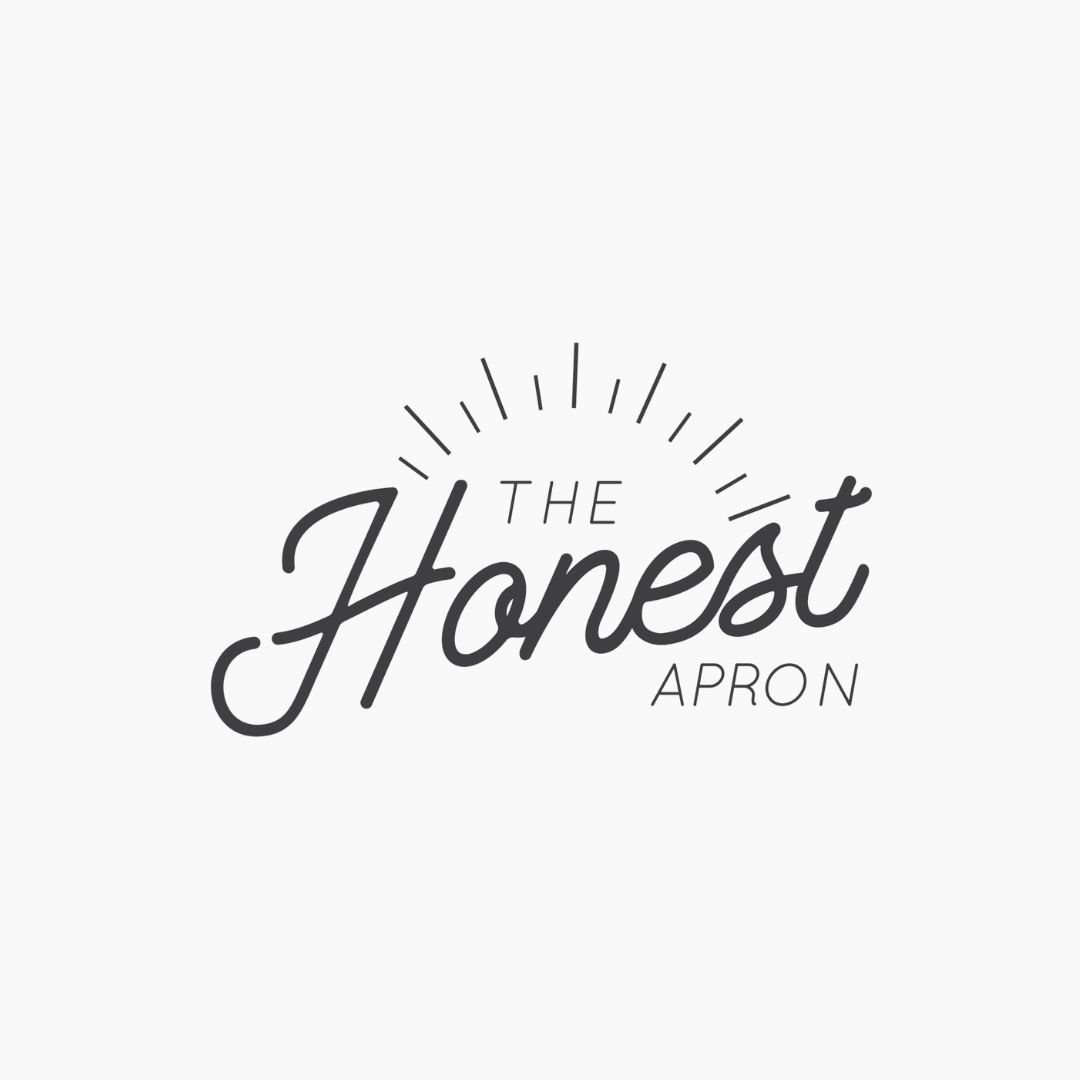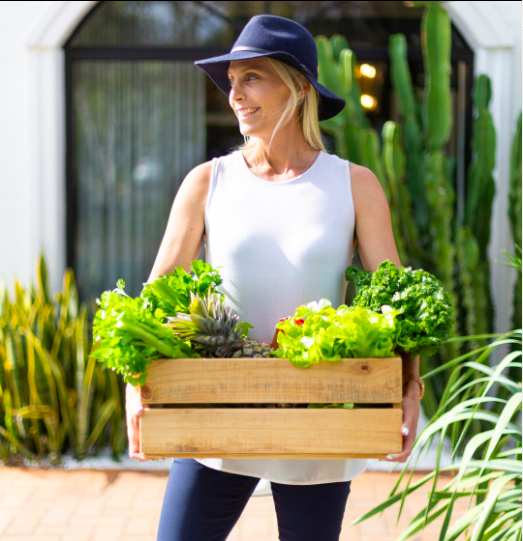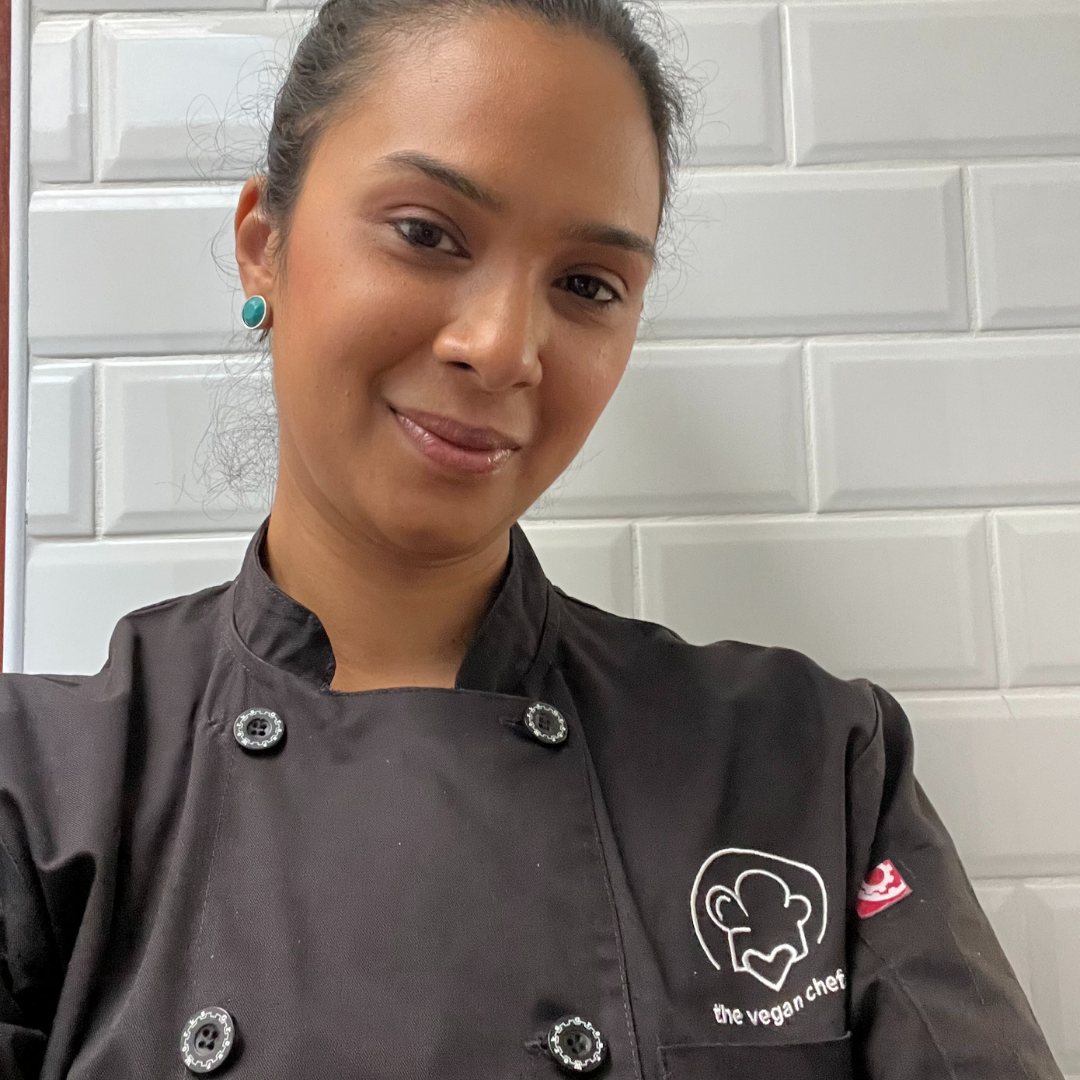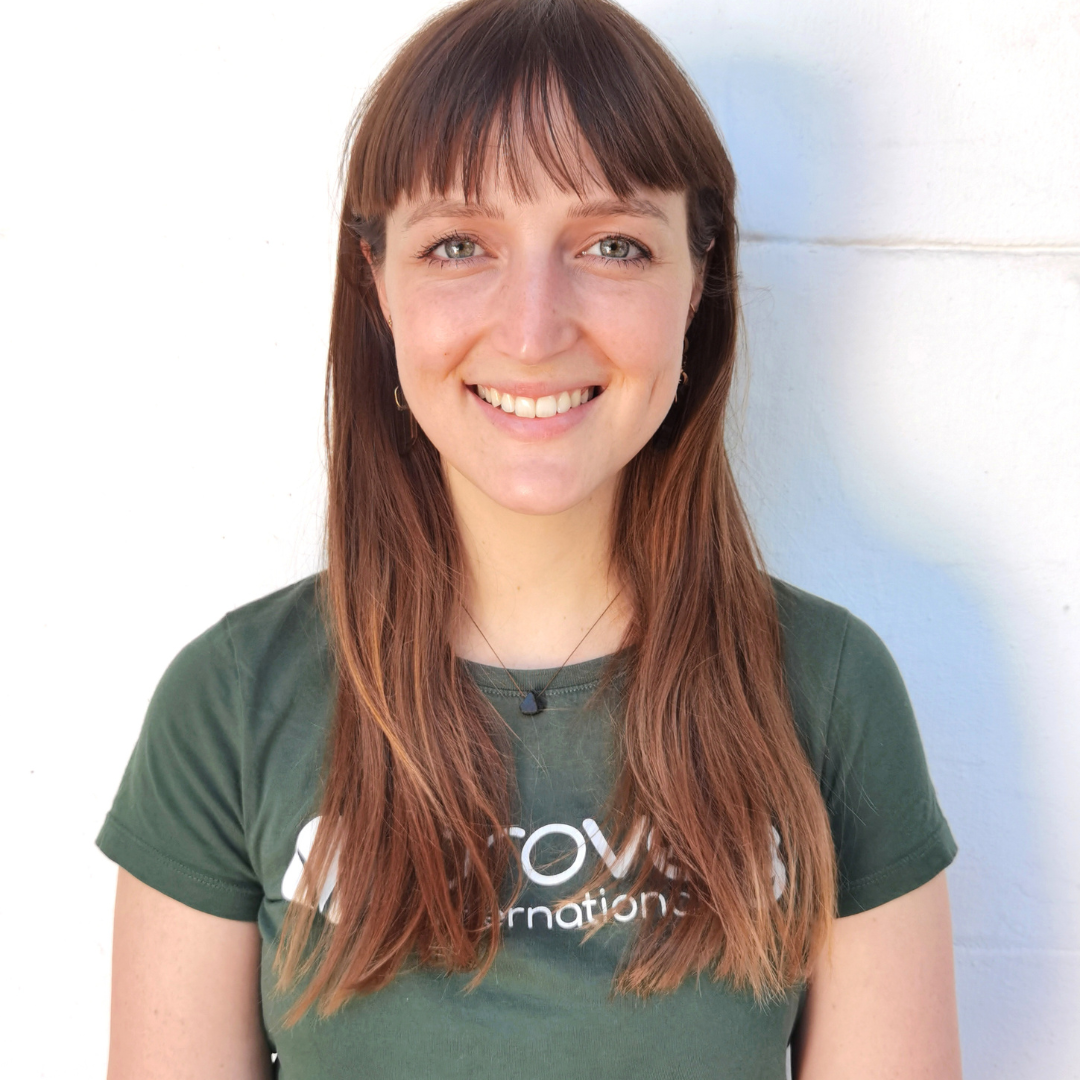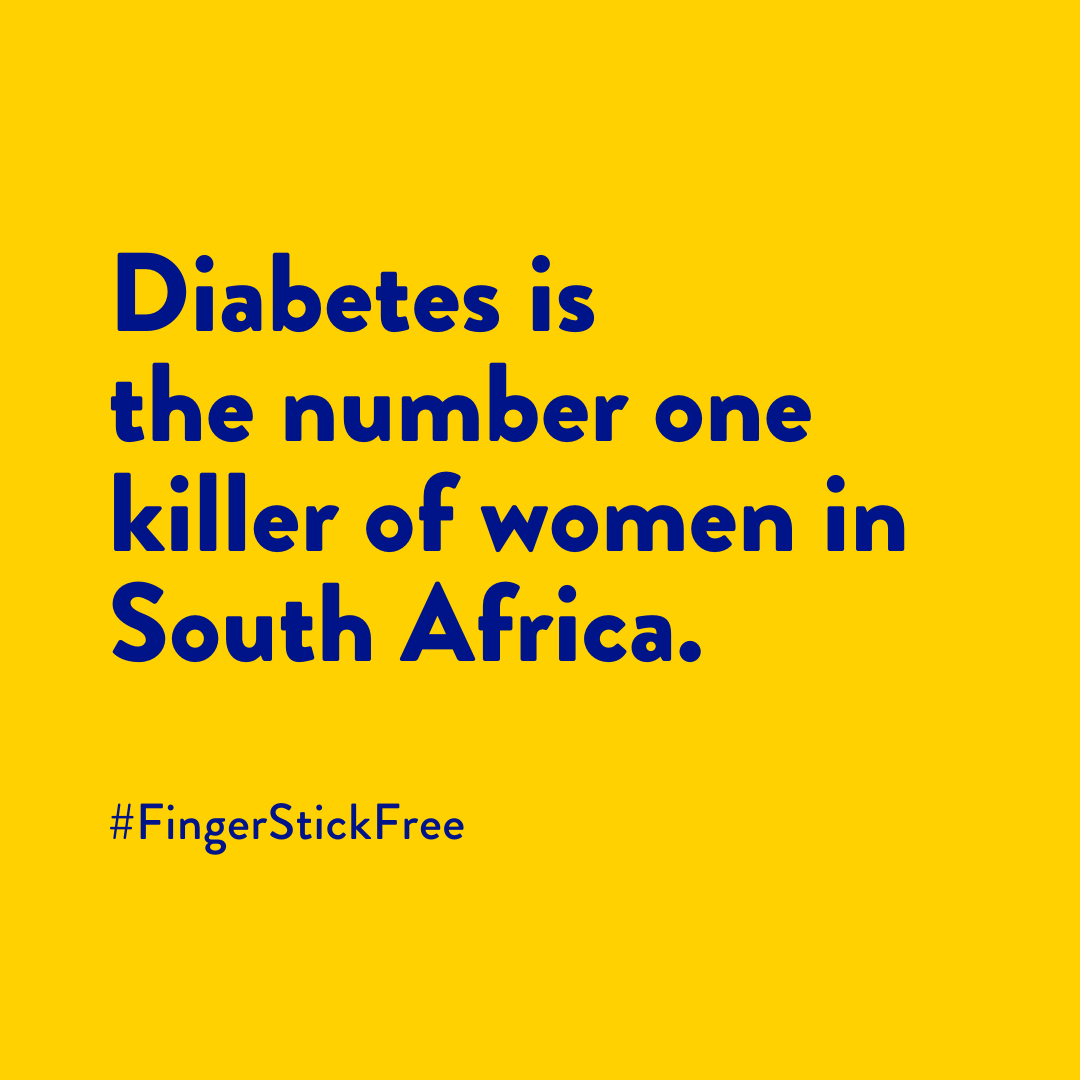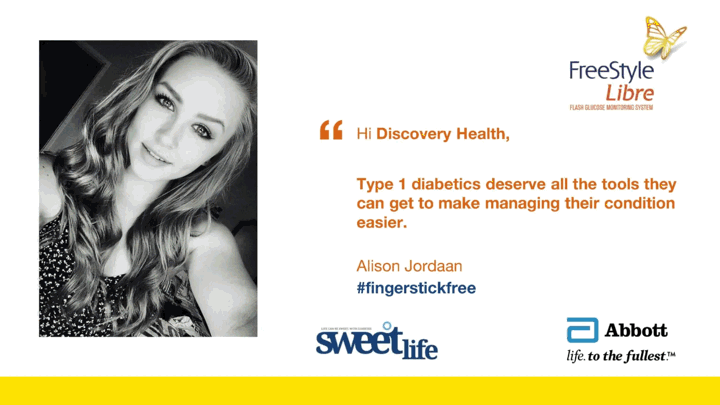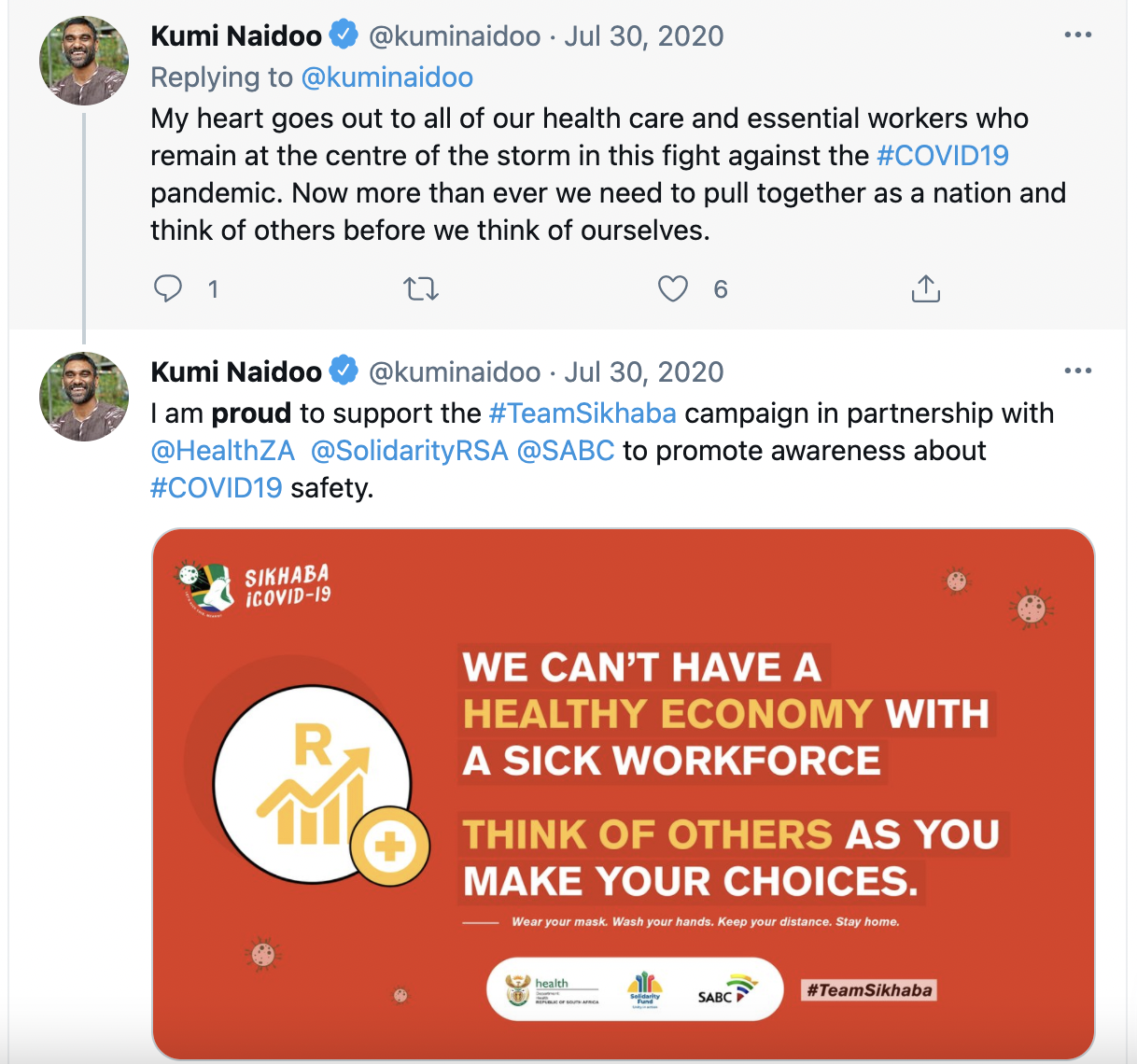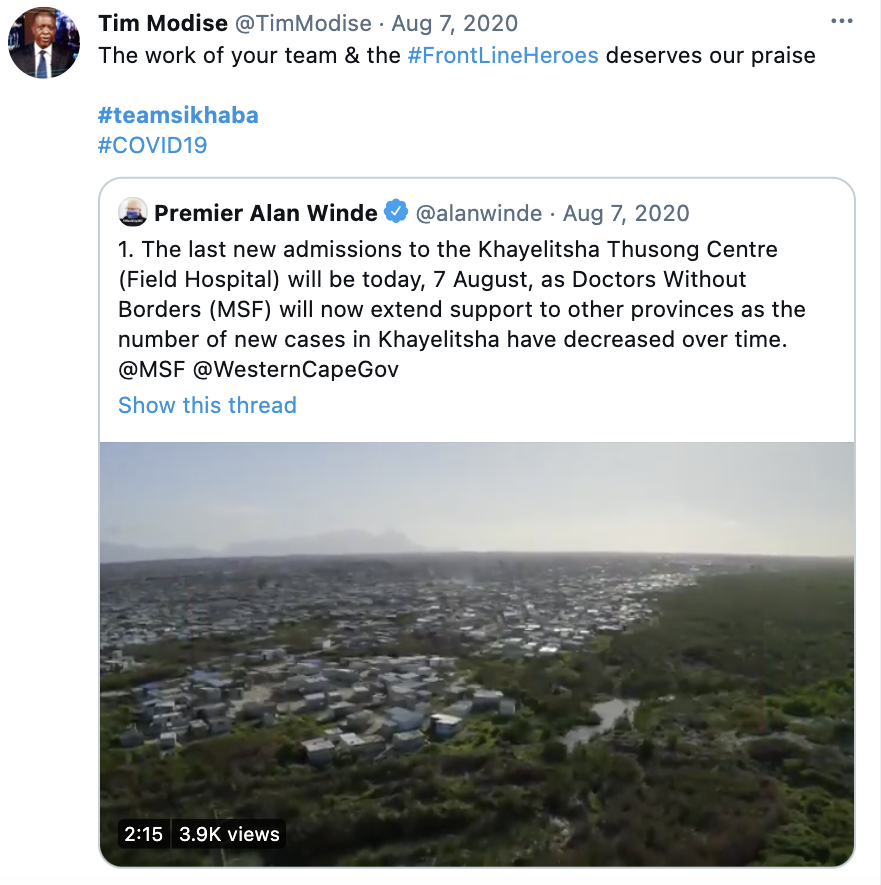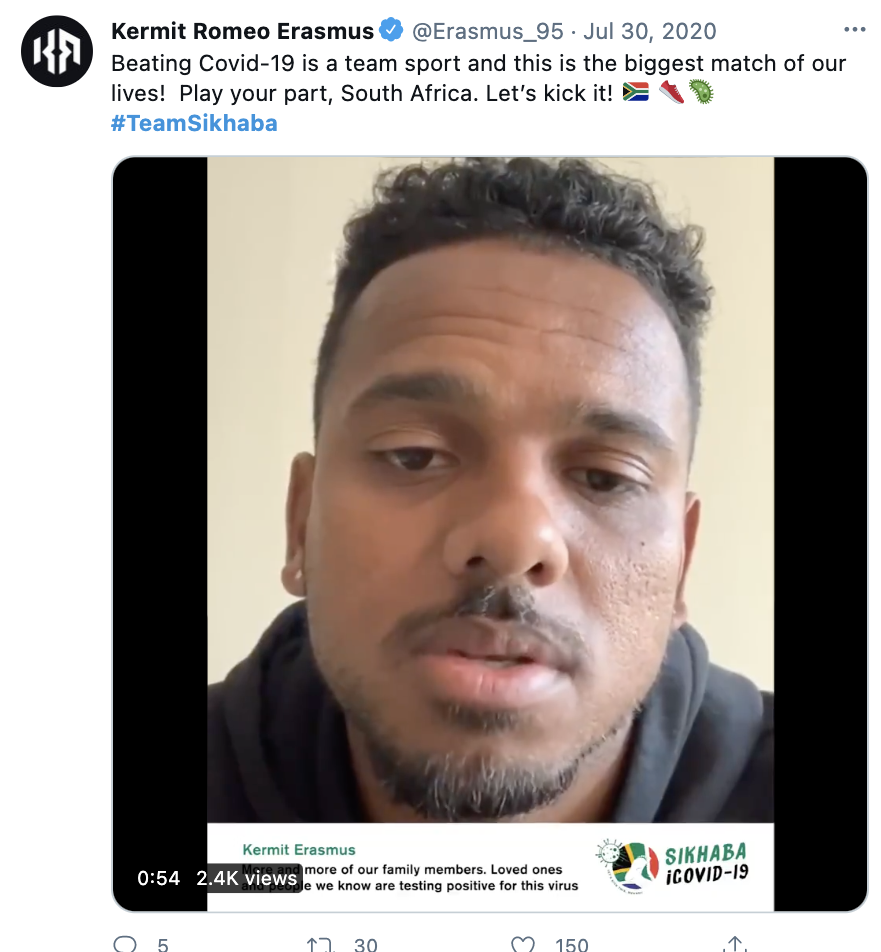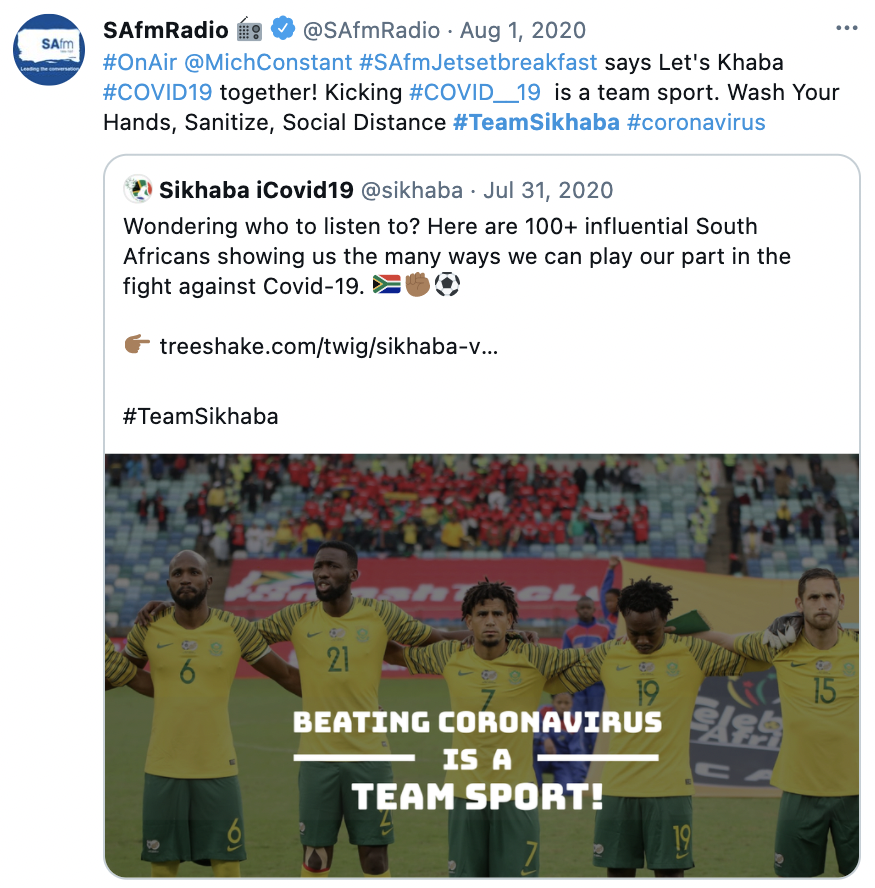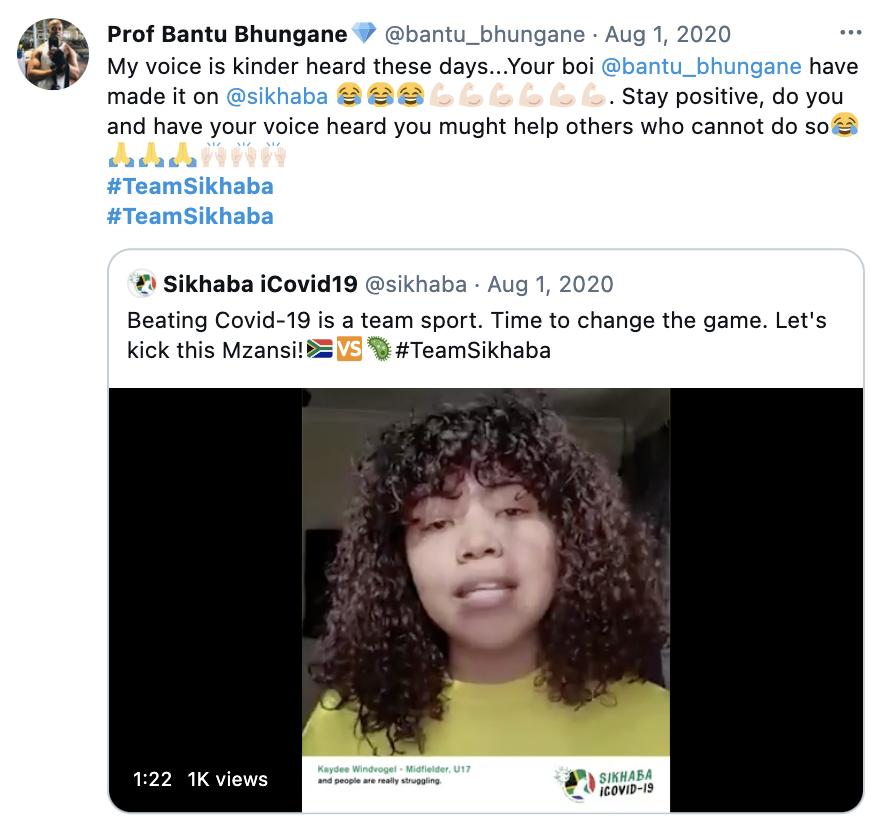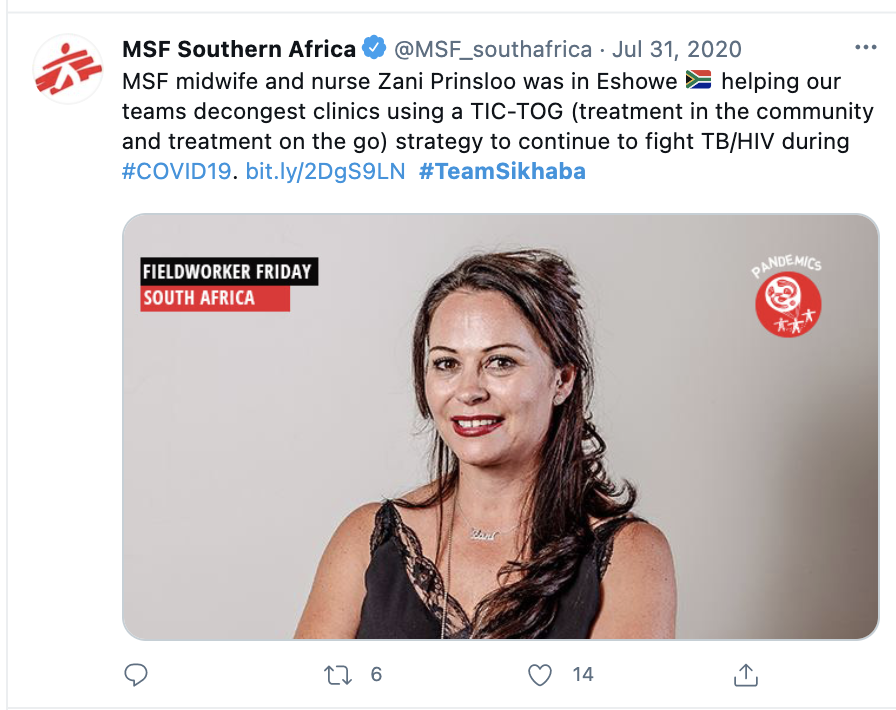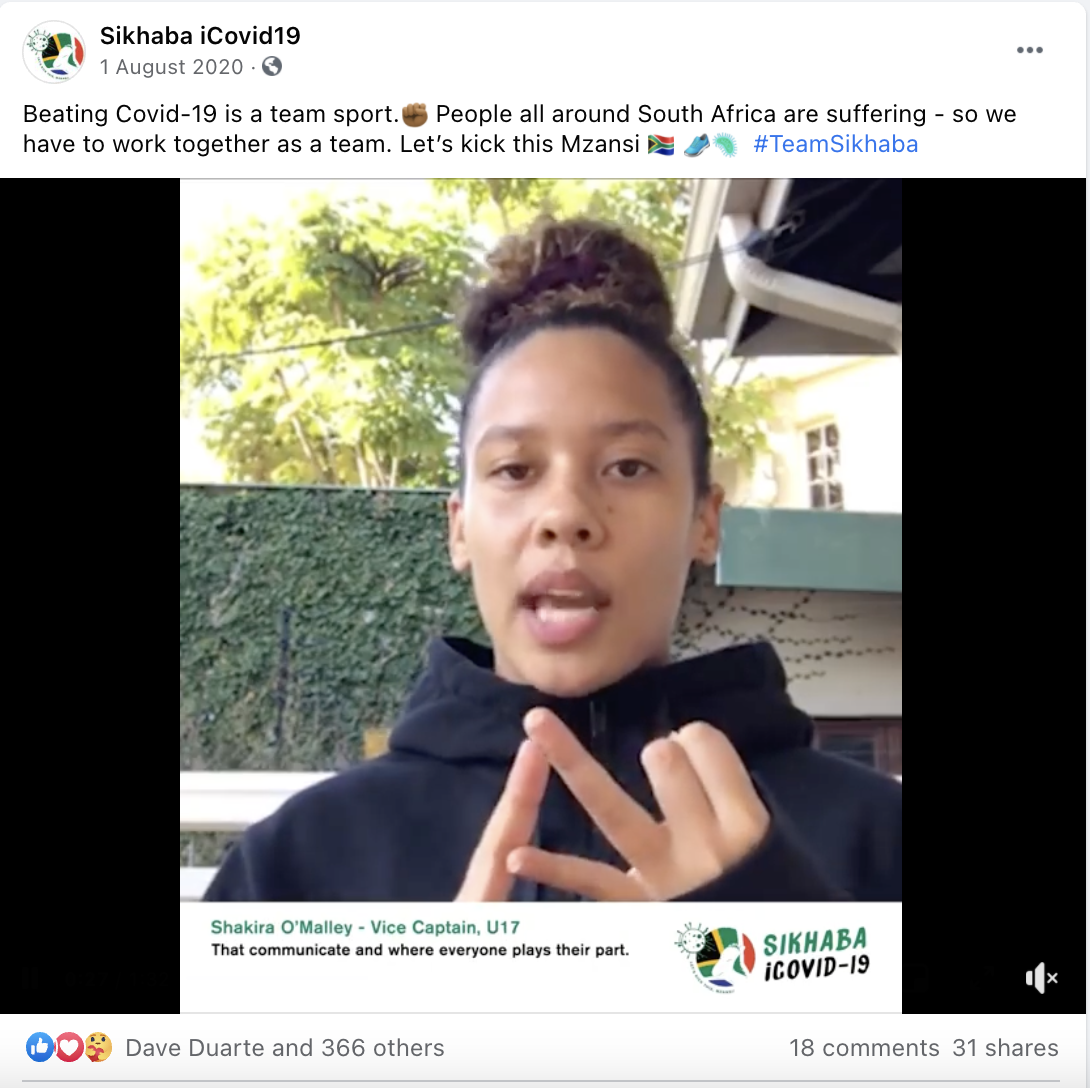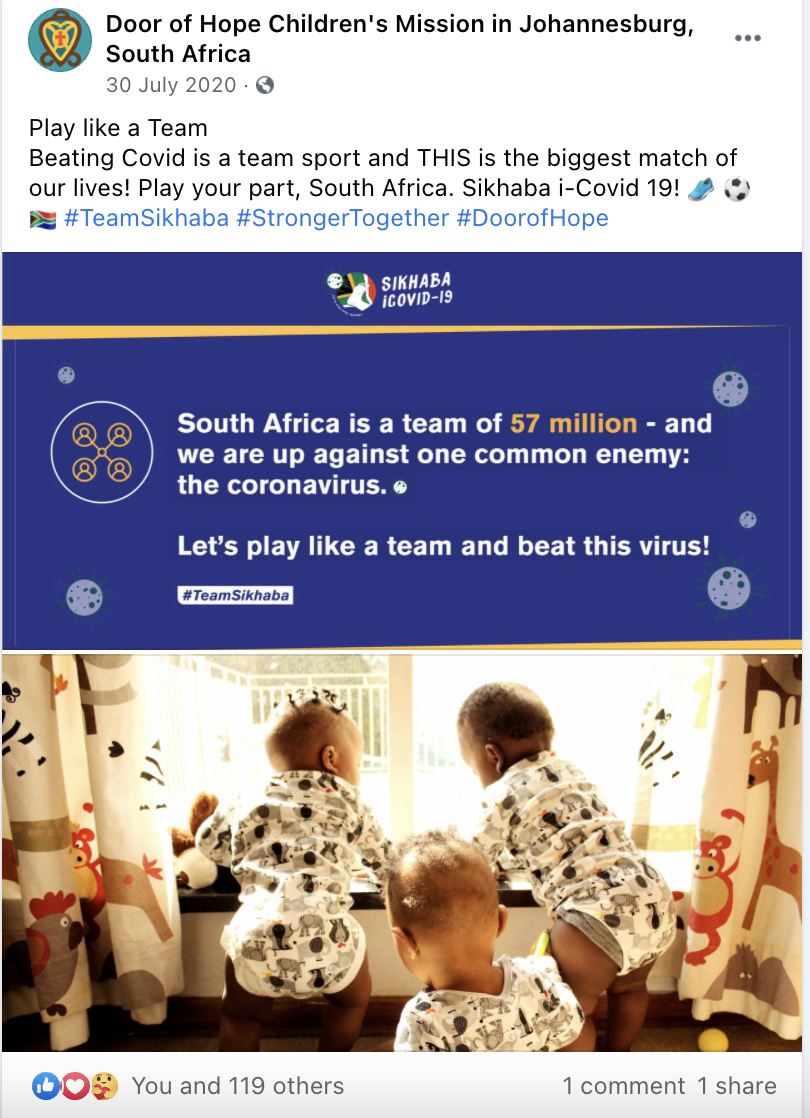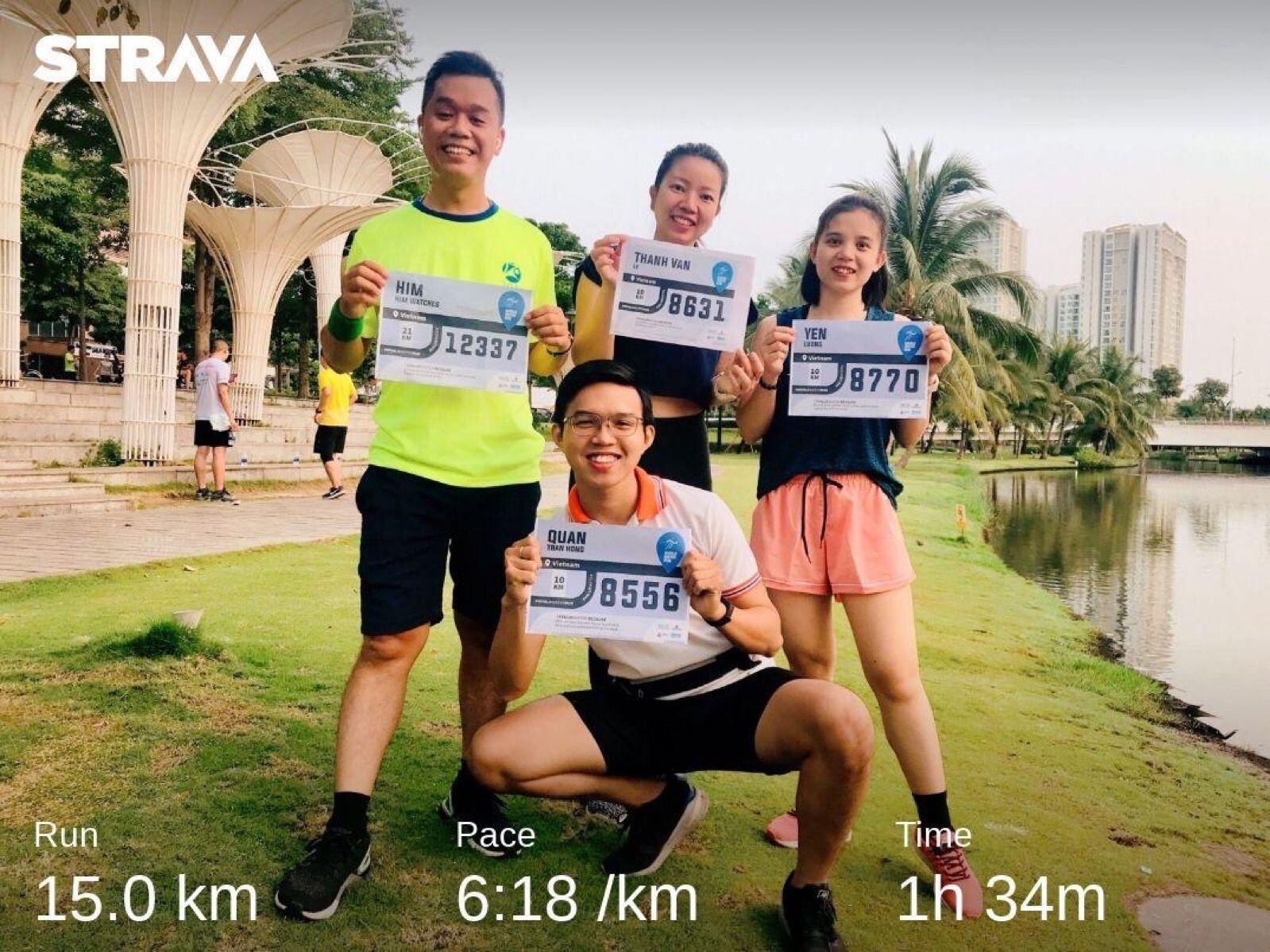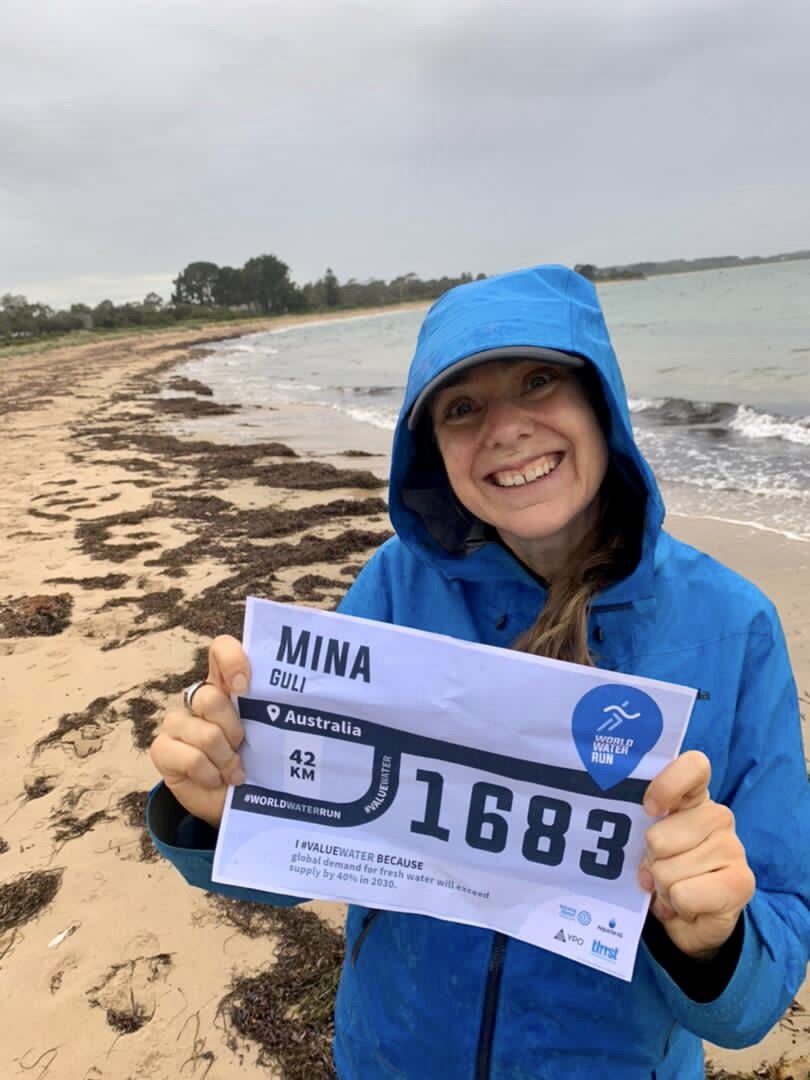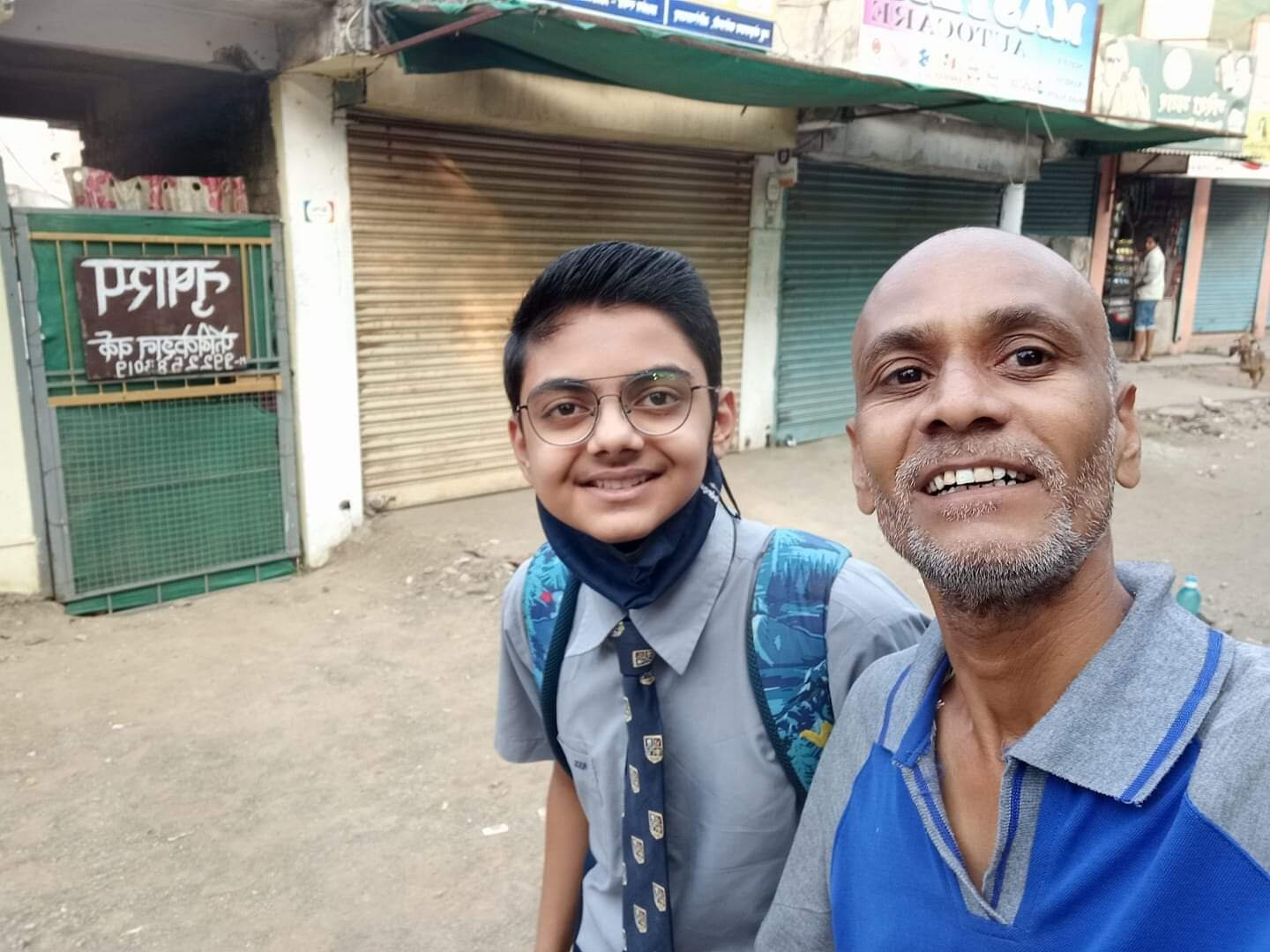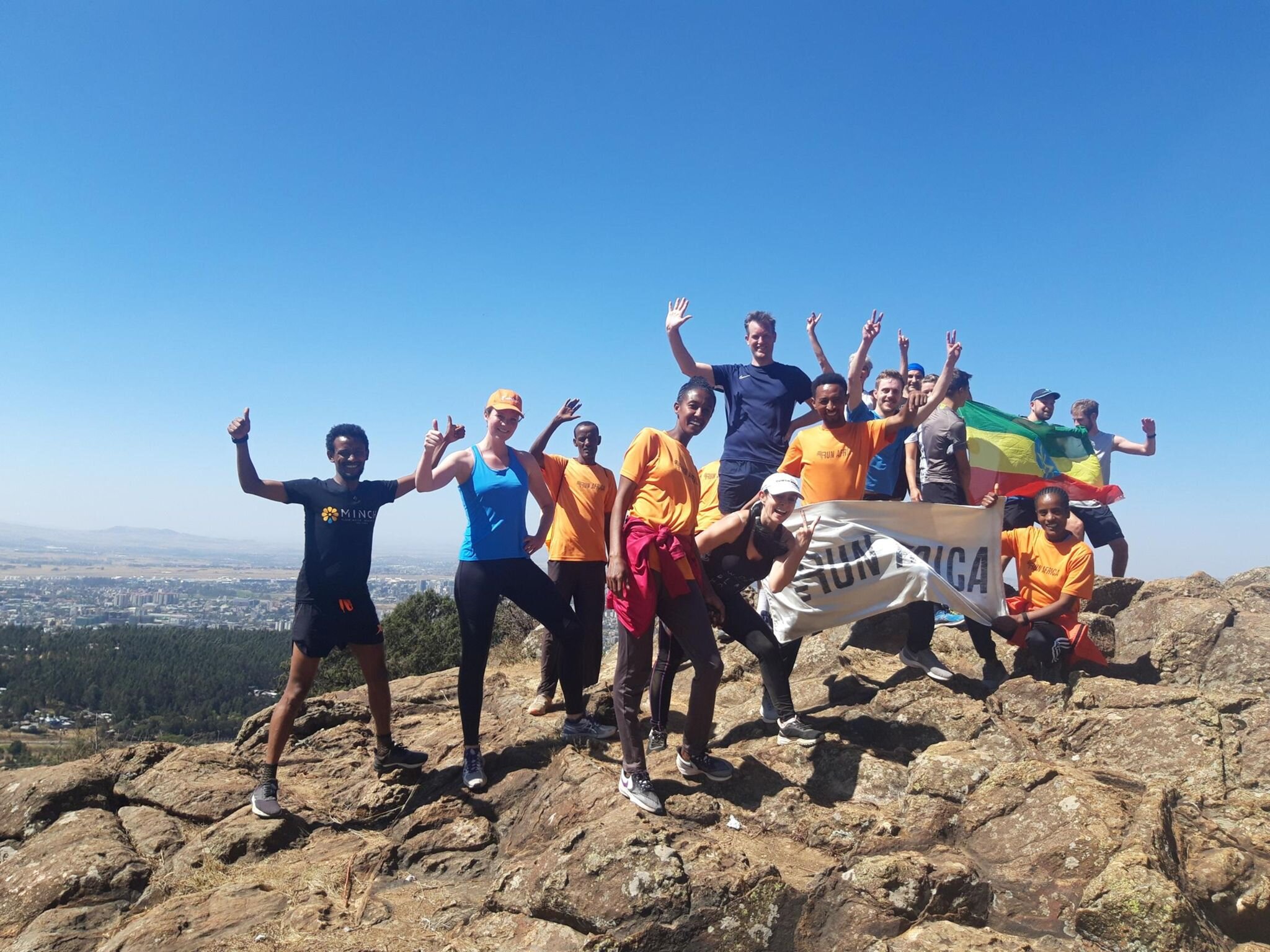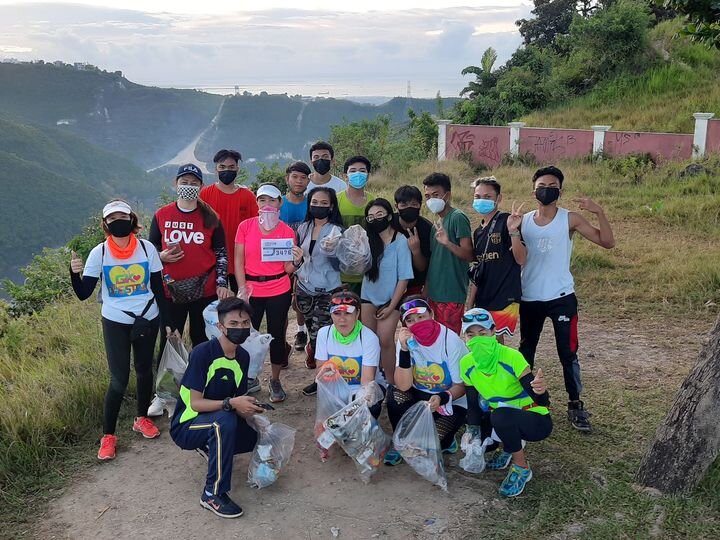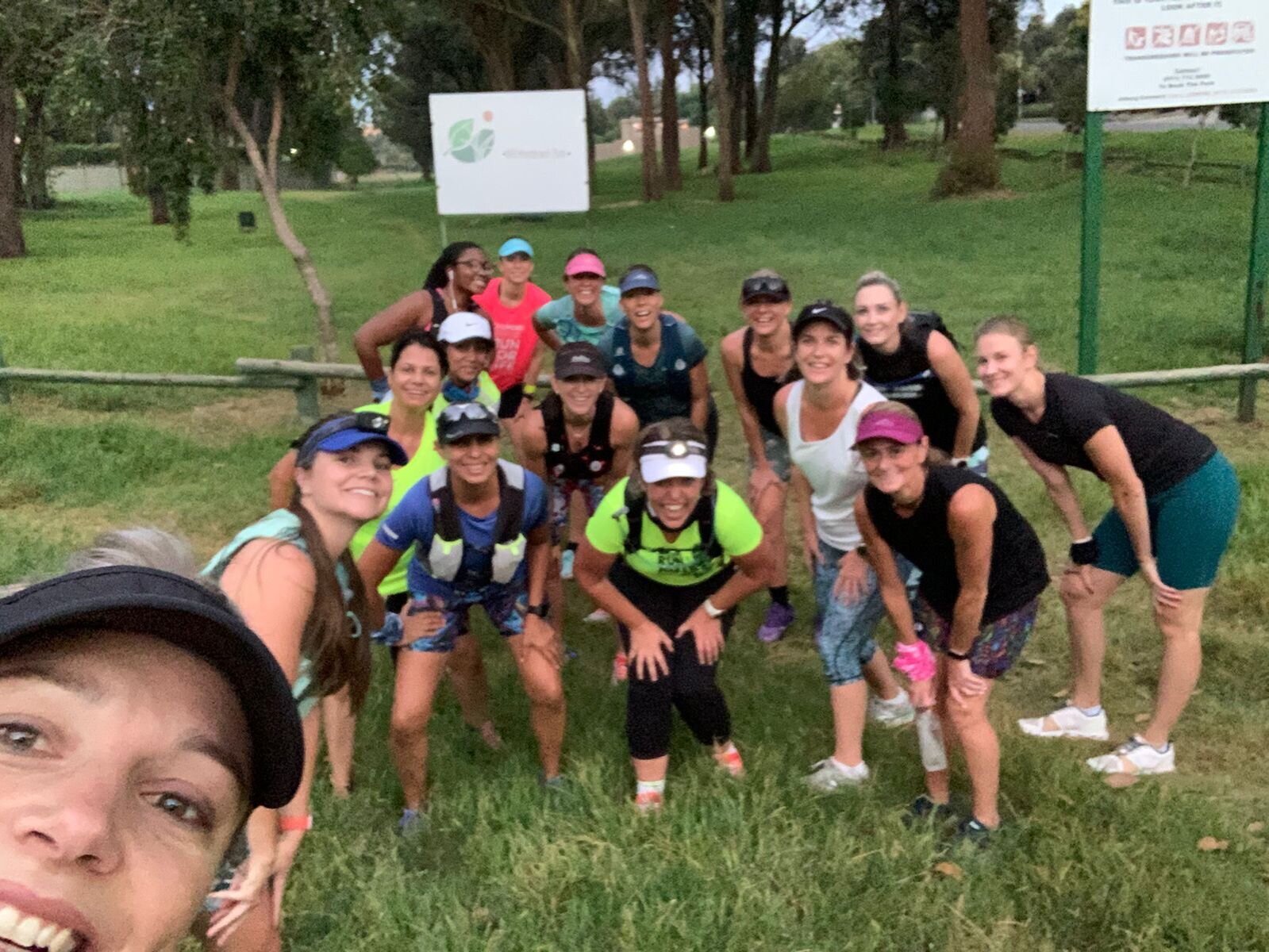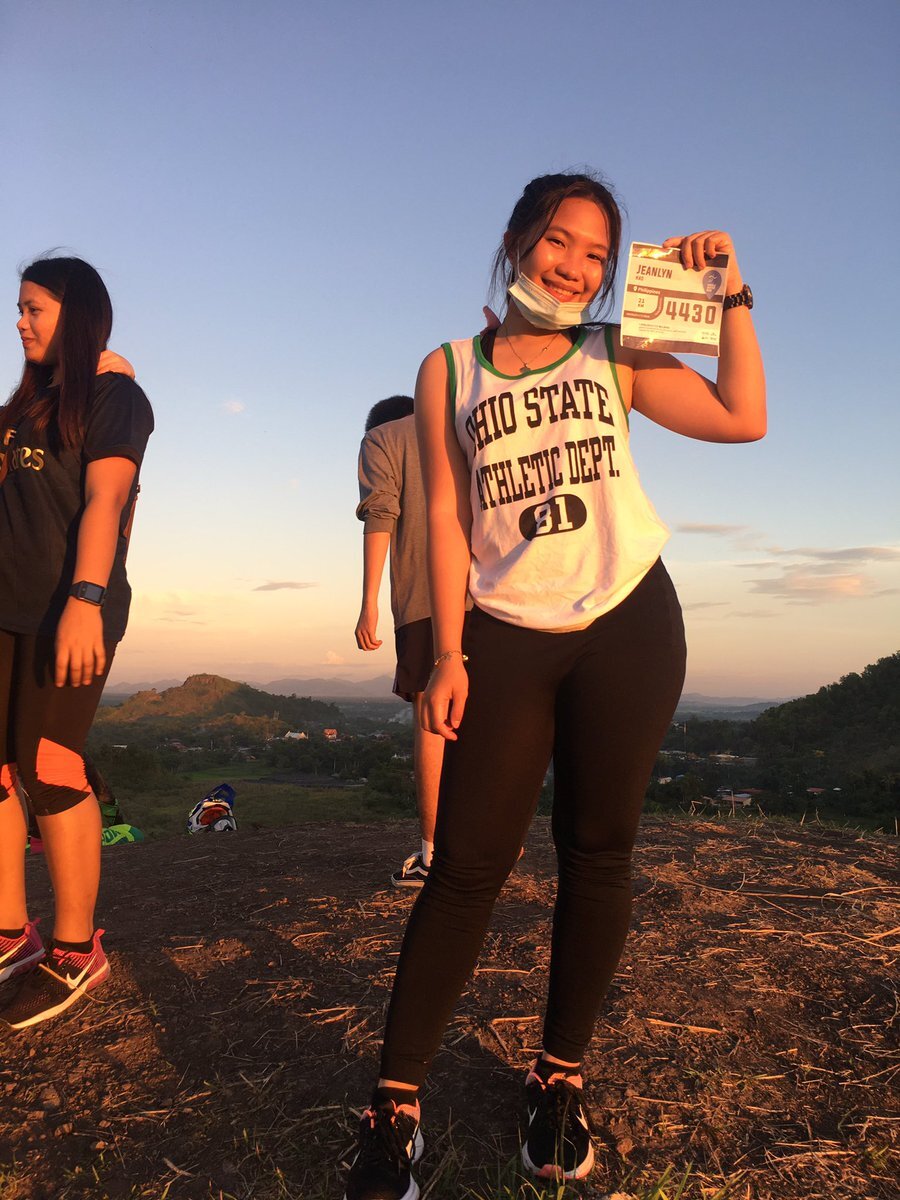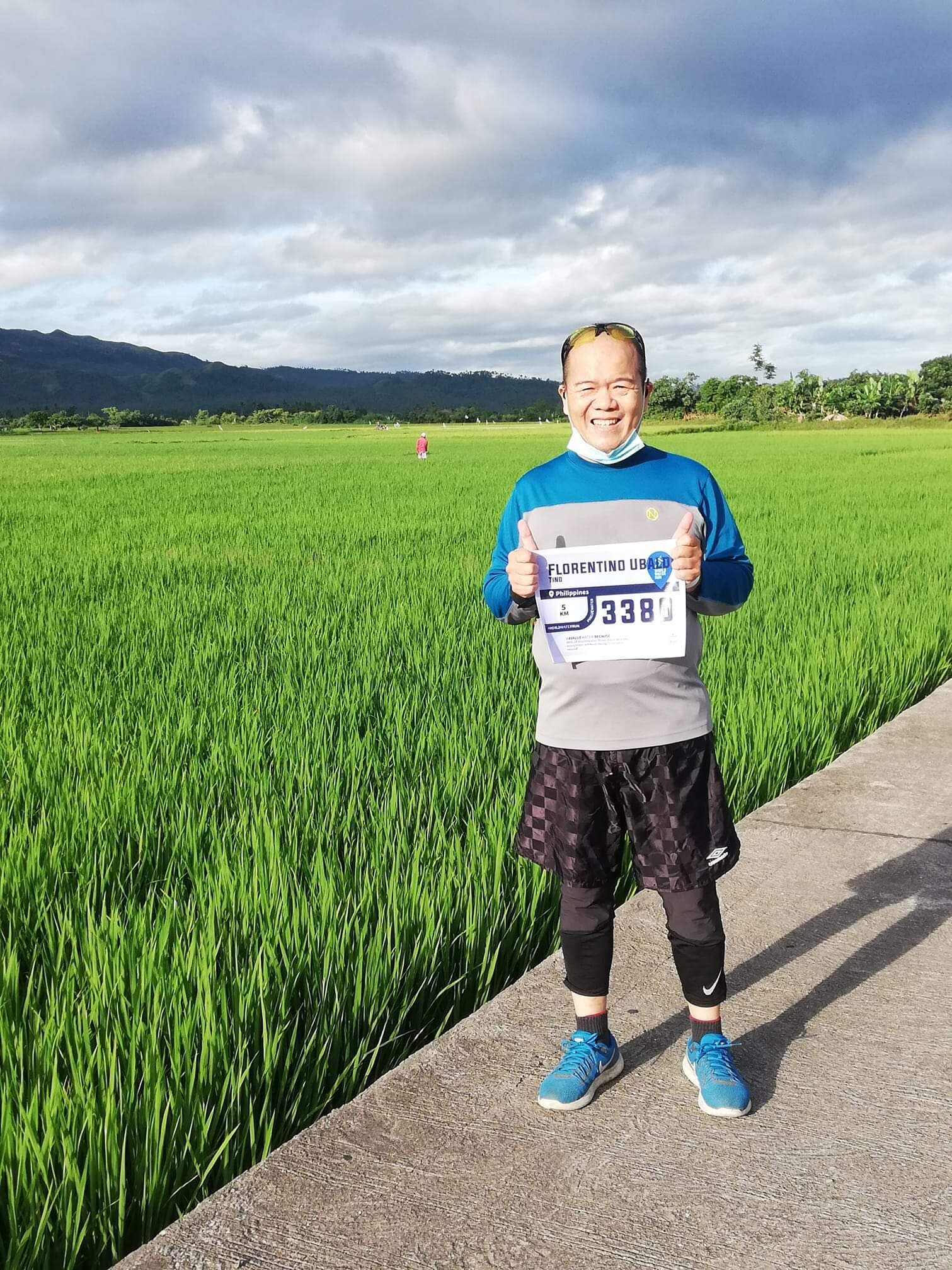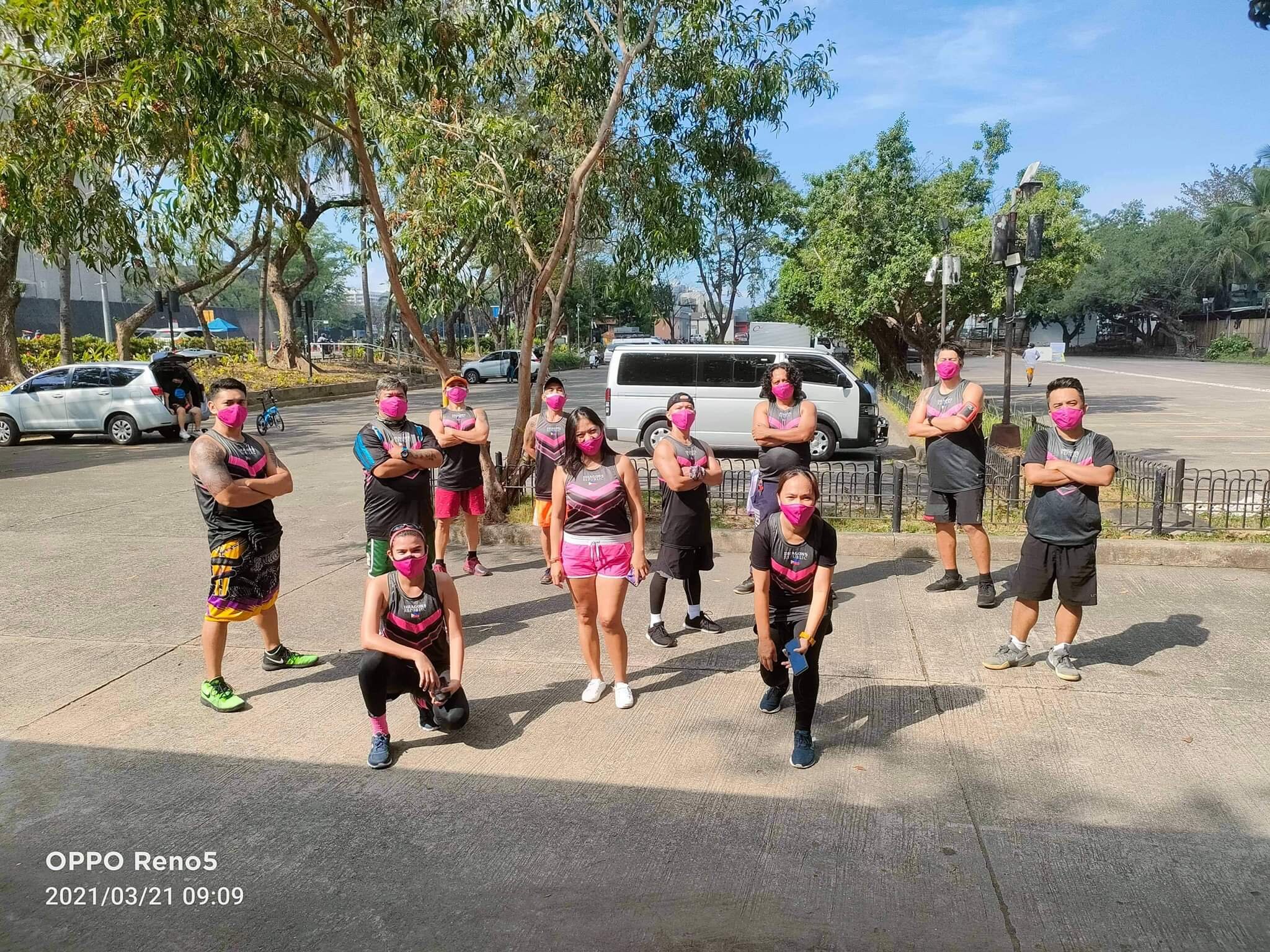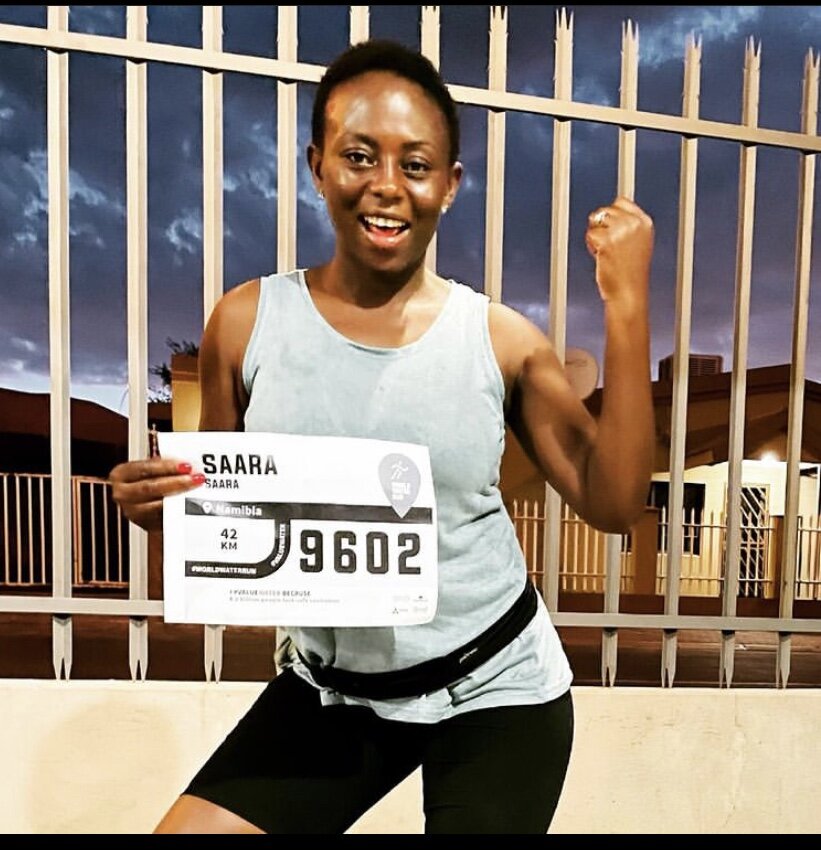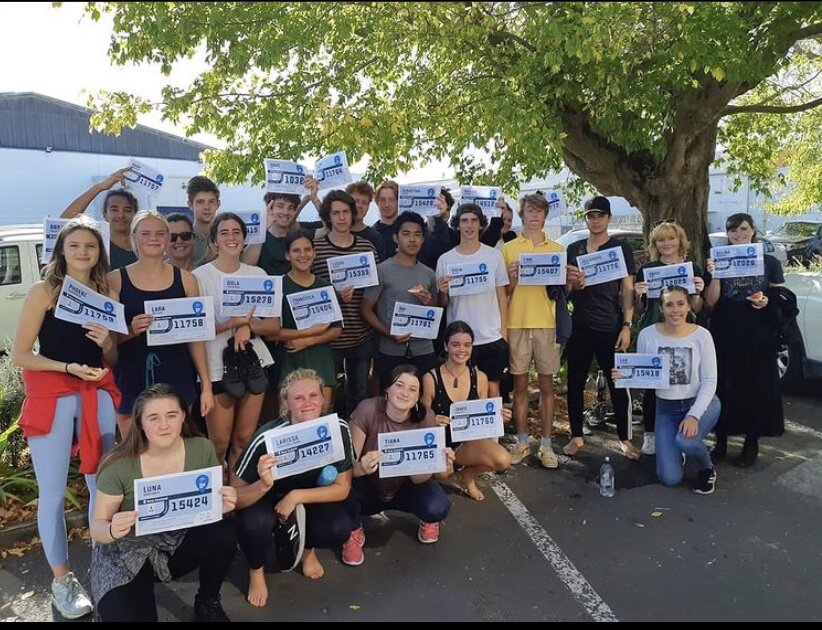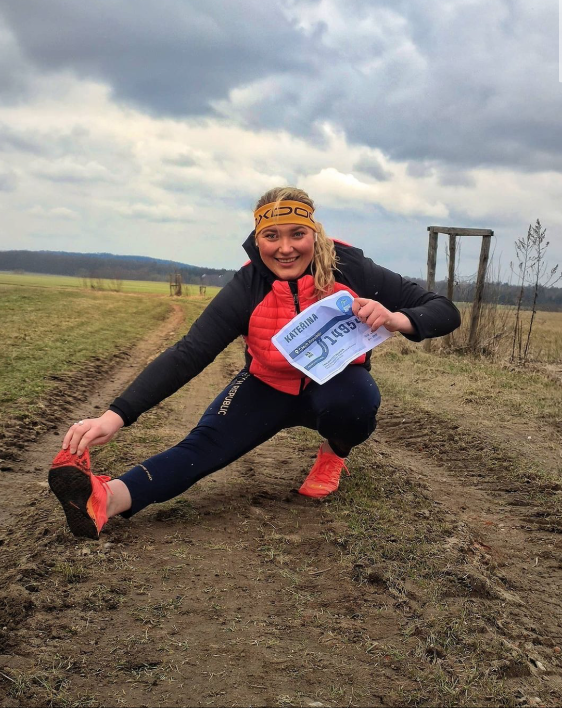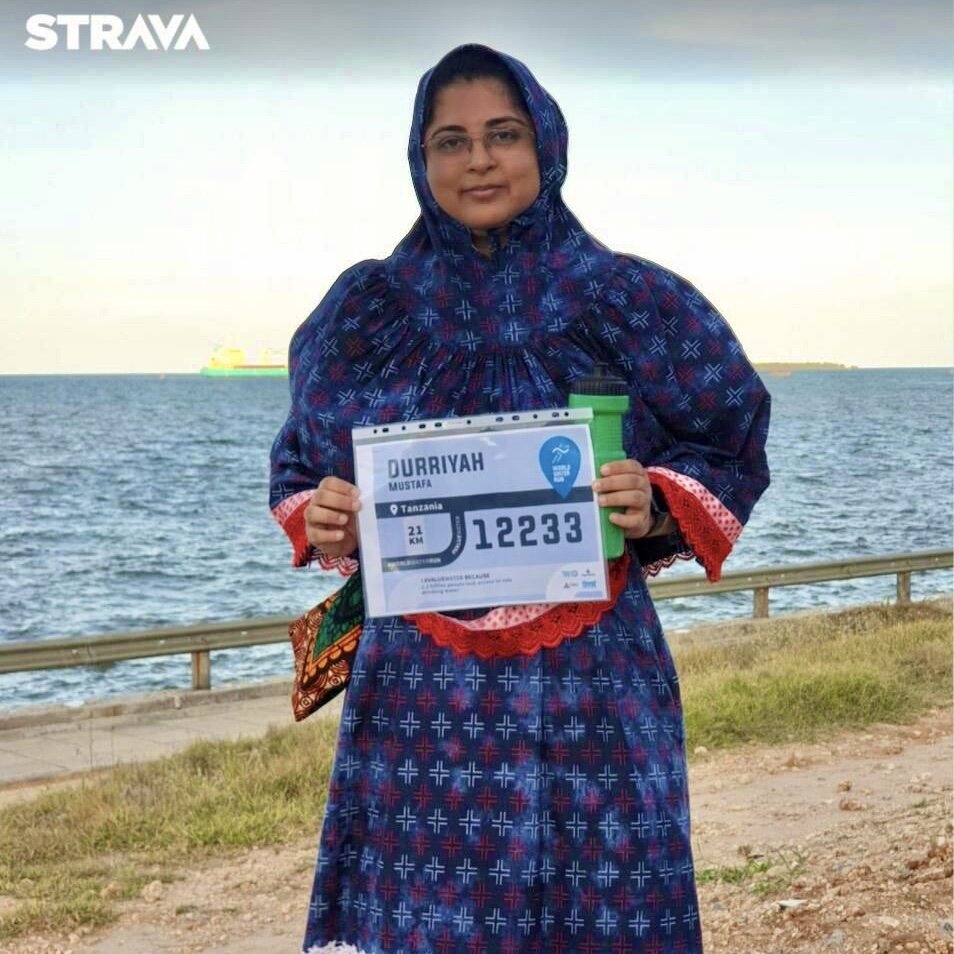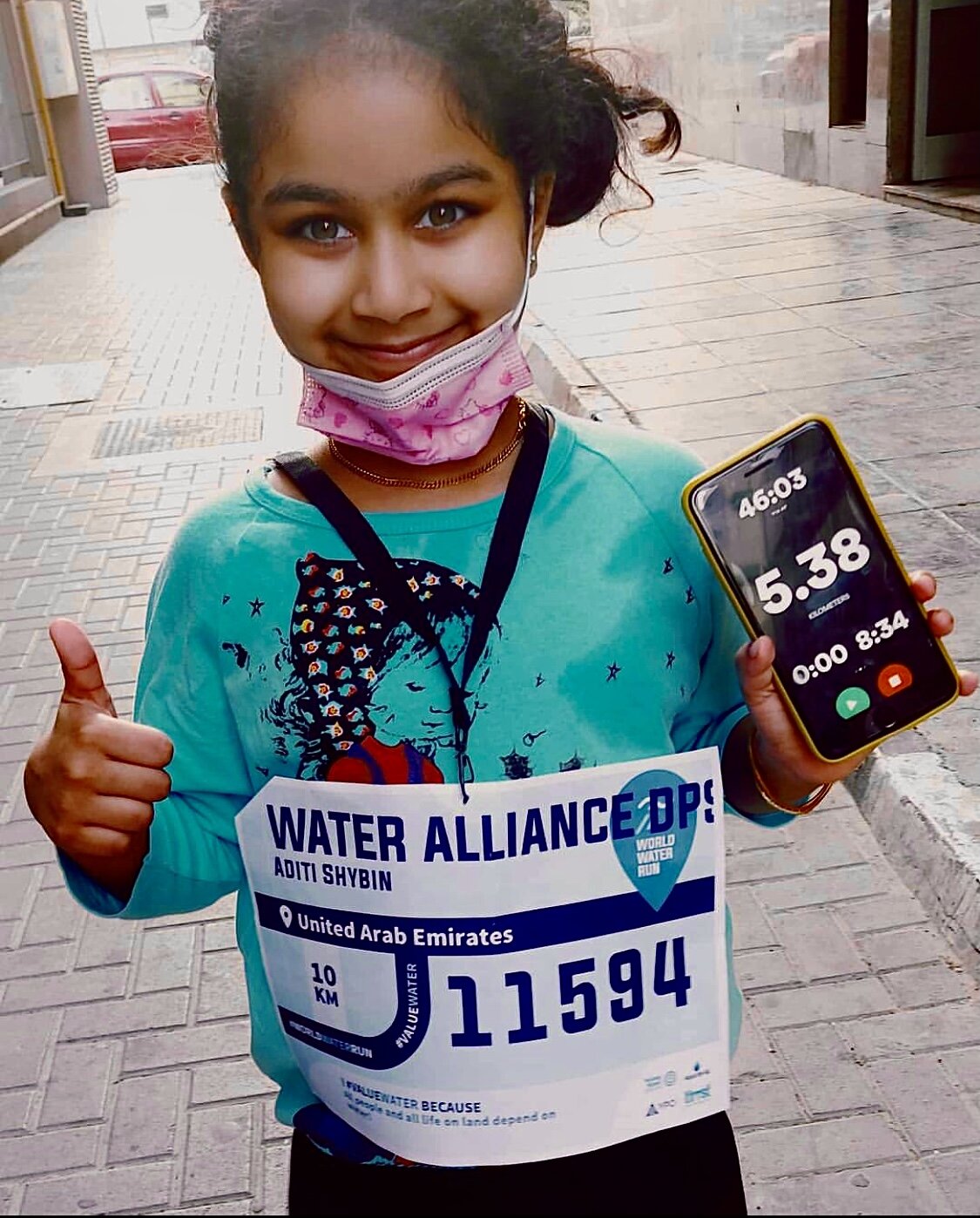Plant Power - 50 Inspiring SA Organisations to celebrate and support
Solving the world's most pressing problems, like deforestation, climate change, and species extinction, requires collective effort. These organizations lead the plant-based movement in South Africa.
The world is changing, and so is the way we think about our food choices. From plant-based burgers to dairy-free milk alternatives, it has become easier than ever to ditch animal products and adopt a more compassionate and ethical approach to eating. But, a plant-based lifestyle is no longer just about the food or just a dietary preference, it's a lifestyle and a movement that's gaining momentum globally, and for a good reason. Ranging from improved well-being and mental health to mitigating environmental concerns and improving the lives of farm animals, the results of making even the smallest changes in the way you eat and live can add up to massive changes.
However, change cannot happen overnight. It takes a collective effort from a number of dedicated individuals and organisations to achieve solutions to many of the world’s most pressing problems - deforestation, climate change and the extinction of species just to name a few. The organisations on this list are at the forefront of the movement and have tirelessly dedicated themselves to making the world a kinder, safer and healthier place through their advocacy of a plant-based lifestyle.
Whether you are a seasoned vegan or just curious about this movement, it's clear that the work of these organisations is having a profound impact on our world and will continue to shape the future of our planet. So how can you help? All you need to do is support them. Whether it be through donations, volunteering your time and skills, or simply spreading the word about their efforts, every little bit counts.
Source: Authentic Roots
Authentic Roots
Authentic Roots is a bespoke gift and plantable children's book company dedicated to eco-friendliness and animal welfare. Their gifts are crafted from trendsetting materials such as pineapple leather, recycled plastic and cotton, and the plantable storybook is educational and made from recycled paper embedded with seeds for lettuce and tomato. Supporting local artisans, all products are produced locally.
The company's founder, Tanya van Rees, is a passionate humanitarian who prioritizes sustainability and community development in her business practices. Inspiration is drawn from nature and a conscious living philosophy. Their product line includes Pinatex (made from natural, sustainable pineapple leaf fibres), recycled plastic PET fabric, 100% cotton totes and eye pillows, and 100% biodegradable picnic and gin sets. The latest addition, a handmade plantable storybook, brings together eco-consciousness and childhood education.
Savannah Greeff Photography
Nick and Nichol’s
Nick and Nicole, a husband-and-wife artist team, are committed to healing the planet and reducing pollution through their upcycled creations. They transform discarded inner tubes from car and truck tires into stylish designer bags, shoes, homeware, and accessories that resemble leather, earning them the title of "Vegan Leather" from many customers. After honing their skills for two years in a garage, they opened a studio shop at Caster Bridge in White River, Mpumalanga, where they met global customers and introduced their products to the world. However, with the pandemic and a desire to connect with more customers and create more awareness around who they are and what they do, they closed the shop and went online in 2020.
Now, Nick and Nicole have purchased a hectare of land near the beautiful Makhonjwa Mountains in Mpumalanga, South Africa, and have acquired 14 new machines to expand their business, increase environmental conservation, and empower a local impoverished community all at the same time. They plan to build a workshop, studio, and training centre and transfer skills to the young people in the area, creating employment for at least 25 people. To make this vision a reality, they need help with infrastructure such as Wendy Houses to put their 14 machines in, solar power, a vehicle for collecting raw materials, and plumbing facilities. By helping to build this workshop, they can start making beautiful creations right away and reduce the number of inner tubes that end up in landfills. You can watch their story here. If you would like to support their cause, please visit their Patreon page.
South African Vegan Society
The South African Vegan Society is a volunteer organisation that promotes the vegan lifestyle through public outreach, resource distribution, product endorsement, and support for those who choose this way of life. Founded in 2007 by a group of passionate activists, the Society has been instrumental in creating awareness and increasing knowledge about veganism in South Africa. Today, it aims to make the vegan lifestyle accessible, enjoyable, and sustainable for all South Africans.
In addition to its outreach efforts, the South African Vegan Society also endorses products and services that align with its mission. The Society hopes to continue being a part of the broader community of activists working towards welfare, liberation, and social justice by promoting veganism as an ethical baseline. Through its website, the South African Vegan Society provides people with the information they need to embrace and maintain a vegan lifestyle.
The Green Dietitian
The Green Dietitian, a dynamic duo made up of Jessica Kotlowitz and Nadia Mulder, is leading the charge in plant-based and vegan nutrition in Cape Town's Sea Point. As registered dietitians, they bring a wealth of knowledge to the table and are dedicated to helping clients of all dietary backgrounds achieve their health and wellness goals. They believe in the principles of body and food neutrality, promoting food freedom and intuitive eating to build positive relationships with food.
These experts also support a long-term approach to veganism that dispels any myths about the lifestyle and keeps vegans healthy at all ages. Staying at the forefront of plant-based nutrition research, they are adept at translating complex science into practical and easy-to-understand information for all. The Green Dietitians are determined to bust nutrition myths and educate both the public and their fellow healthcare colleagues.
Source: TedxCapeTown
ProVeg South Africa
ProVeg South Africa is an organisation that seeks to revolutionise the global food system by introducing plant-based and cultured alternatives to animal-based products. They recognise that many of the world's most pressing issues are linked to the food we consume, and are passionate about educating people on the positive changes they can make to the planet, animals, and themselves with their dietary choices. By empowering people to make conscious, healthy decisions about what they put on their plate, ProVeg works towards a future where everyone can enjoy delicious and nutritious food that is beneficial to all.
Partnering closely with international decision-making bodies, governments, food producers, investors, the media, and the general public, ProVeg South Africa works towards a future where everyone can enjoy delicious and nutritious food that is beneficial to all and to fulfil their ultimate mission: to reduce the global consumption of animals by 50% by 2040.
Source: Facebook Page
Mahala Botanicals
Mahala Botanicals is a premium non-alcoholic, triple-distilled spirit that offers a unique taste experience for health-conscious and mindful consumers. From farm to glass, the entire process of foraging botanicals to distillation is owned and operated by the company, using custom-built vacuum stills in South Africa.
Master Distiller, Danielle Schoeman, started experimenting with various alcohol-free distilled spirits in 2020, and after foraging botanicals from her family farm in the Cape, she discovered the perfect recipe for Mahala Botanical. The spirit is made using nine different botanicals, some of which are indigenous to the Western Cape, and as the name Mahala, meaning “free” in Zulu suggests, is free from sugar, alcohol, colourants, and artificial flavours. The spirits are also gluten and vegan-friendly, offering a sophisticated alternative to alcoholic beverages.
Not only does Mahala produce premium non-alcoholic spirits, but it is a socially responsible business that is dedicated to empowering previously disadvantaged individuals by offering them employment opportunities. They also support local workers, such as The Sparrow Society, who collaborate with Mahala to create stunning product display bags. Additionally, a portion of their sales in South Africa goes to The Botanical Society of South Africa, an organisation that works tirelessly to conserve South Africa's remarkable plant diversity and ecosystems through biodiversity conservation efforts.
PAN South Africa
PAN (Physicians Association for Nutrition) South Africa was established in 2020 with the goal of providing healthcare professionals with access to plant-based nutrition information. Since then, PAN South Africa has hosted two webinars on plant-based nutrition and climate change and is working to educate medical students. Its mission is to address the climate crisis and pandemic risk associated with the current food system and equip healthcare professionals with the tools to treat patients through nutrition.
PAN South Africa is constantly expanding, working to create a national network of physicians, dieticians, medical students, and other healthcare workers, who collaborate with an international community to influence policy-makers and create positive change in food environments. By 2050, PAN South Africa hopes to eliminate diet-related deaths.
Source: Google
Oh my cluck
Oh My Cluck is a team of innovative minds with a mission to revolutionize the quality of vegan products grown and produced locally in South Africa. They strive to create plant-based, chickless products that leave a lasting impression, using only the finest ingredients.
From their crispy 100% vegan chick'un to their groundbreaking fry-at-home vegan eggs, Oh My Cluck has you covered for all your chickless needs. Their products are 100% vegan, gluten-free and made without causing harm to any animals.
Source: Facebook Page
Grumpy and Runt
Grumpy & Runt is a Cape Town-based deli and vegan bakery that specializes in hand-crafted donuts (or doughnuts). Their donuts are made fresh daily, with a rotating selection of 8 unique flavours that change every Tuesday. They blend classic donut flavours with traditional desserts, nostalgic treats, South African classics, French pastries and even have a donut waffle, called the "Do-Waffle".
In addition to their donuts, Grumpy & Runt also offers vegan New York-style deli food, baked goods and daily provisions. They strive to make everything from scratch, including their vegan butter, vegan cheese, vegan deli meats, dough, and mayonnaise, for an ethical and indulgent vegan experience. All their donuts are made using 100% natural ingredients and require 18 hours of preparation. They also serve a unique blend of Single Origin coffee, micro-roasted to perfection and produced in collaboration with Mikro Roastery in Hermanus, making it the perfect partner for plant-based Mylk.
Vegan Street Food
Vegan Street Food, located in Observatory, Cape Town, is the epitome of plant-based fusion cuisine. Owners Braidy and her mother Lee-Ann are passionate vegans committed to creating exciting vegan experiences and spreading the love for the vegan movement. With a mission rooted in heart, body, and soul, they offer 100% vegan cuisine and believe in making a positive impact.
Established in 2016, Vegan Street Food started as a small, family-owned cafe at local markets and has since grown into a bespoke eatery with grand ambitions. Lee and Braidy are continuously striving to innovate new and exciting products and events to expand awareness of the vegan philosophy far and wide. With their passion and expertise, they are making a difference in their local community and the vegan world.
Source: Facebook Page
Muiz Kitchen
Muiz Kitchen is a thriving community vegan kitchen located in Muizenberg. This kitchen serves as a hub of nutritious, plant-based meals that are both affordable and accessible to the community. Muiz Kitchen is designed to be a space of growth, learning, and sharing where everyone is welcome to come and participate.
The kitchen works closely with the Muizenberg Community Garden and local ingredient suppliers to promote economic growth and build relationships for a more resilient future. The unique alternative exchange system, Muiz Coin, allows individuals to earn meals through volunteering in the kitchen or garden or participating in weekly street cleanups.
In addition to co-hosting nutritional workshops with Spaza Hub, Muiz Kitchen offers a variety of affordable meal options with different payment options, freezer meals, weekly veg boxes, catering services for schools, events and celebrations, and so much more.
Source: Mzansi Meat Co.
Mzansi Meat Co
Mzansi Meat Co. was established with the aim of revolutionizing the food system and the way meat is produced. The company is devoted to bringing the best of Mzansi to the table through healthy, affordable, and accessible meat. With the help of science, they have been able to make real meat with less fat, while maintaining the integrity of its taste. Additionally, cultivated meat is expected to reduce the environmental impact of agriculture by using much less land and water, making production more cost-efficient.
Mzansi Meat Co. strongly believes that people can still enjoy their favorite foods without jeopardizing the environment and is determined to make a real impact in the food industry. By introducing cultivated meat to the African continent, they are striving towards long-term food security. The company's philosophy is rooted in a harm-free approach, and their mission is to create an ecosystem that will help to achieve just that.
Source: Facebook Page
Herbivore Earth Foods
Herbivore Earthfoods, based in Cape Town, offers plant-based and vegan products that are both healthy and affordable. Since 2014, the company has been committed to making plant-based foods accessible in South Africa and to reducing waste by using compostable packaging.
Look for the Soil-to-Soil logo on each product to know that it is environmentally friendly. Herbivore Earthfoods is leading the way in the plant-based revolution, making it easier for consumers to make sustainable choices.
Source: Facebook Page
Fry Family Food Co
The Fry Family Food Co. was founded in 1991 with the goal of creating nutritious plant-based products for their family who were passionate about following a vegan diet. At the time, the idea of plant-based meat alternatives was a novel concept. However, with determination and a passion for plant-based living, they started crafting quality vegan meat alternatives that were comparable in taste and texture to real meat.
Over the last three decades, the Fry's brand has become a leader in the vegan food industry, with over 40 different products available in more than 40 countries. The company's focus remains on crafting quality meat alternatives made from the best plant proteins sourced from ethical and non-GM sources. Each product is rigorously tested and certified free from pesticides, ensuring that customers receive only the best vegan products.
The Fry's family's unwavering commitment to creating food that they would be proud to feed their own family has not wavered in the last thirty years. They have been at the forefront of the vegan movement, collaborating with NGOs, activists, advocacy groups, and leading vegan influencers to establish a global vegan standard. Fry's remains dedicated to bringing the best plant-based products to the world, and their passion for veganism continues to drive their mission forward.
Source: Facebook Page
Vegan SA
Vegan SA is the ultimate guide for South African vegans, offering a comprehensive directory of vegan-friendly restaurants, shops, products, and accommodation. The website is dedicated to making life easier for vegans in South Africa, providing resources and support for an enjoyable and fulfilling life. With a focus on connecting vegans from all over the country, the directory helps vegans find like-minded people and businesses, and stay up-to-date on the latest news and changes in the vegan movement.
Vegan SA operates as a self-funded organisation, relying on volunteers to keep the directory running. They welcome contributions and support from their community, especially those who are willing to act as volunteer managers for listings in their own regions. As part of the global vegan movement, they believe that the more organized their efforts are, the more effective and successful they will become, without compromising their ethical values.
Source: Facebook Page
Fauxmage Nut Cheese
Fauxmage is a gourmet food brand that brings together the worlds of healthy eating and decadent indulgence. They believe in the transformative power of food and strive to make the world a better place through their offerings. Their dairy-free cheese, made from nutrient-rich cashews, is the epitome of this belief, offering delicious and healthy options to those who are conscious of their health and the environment.
With a focus on local, wholesome, and ethical ingredients, Fauxmage prioritizes both taste and sustainability in its products. They source locally whenever possible, growing their own herbs in their back garden and incorporating local elements into their recipes. Their cheeses are also fermented, incorporating bioactive probiotics for a gut-friendly option.
At Fauxmage, animal welfare is a top priority. They avoid using any animal products in their cheeses, making them suitable for vegans and steer clear of harmful palm oil. Their cheeses are made by hand in small batches, ensuring that each bite is a unique flavour experience.
Source: Facebook Page
The Honest Apron
The Honest Apron (THA) is a vegan online bakery based in the East Rand of Johannesburg, South Africa that offers a wide range of delicious vegan baked goods. From Cupcakes, Sugar Cookies, Ganache Tartlets, Lamingtons, Milk Tart, Lemon Meringue, and Malva Pudding, THA is a haven for sweet treat lovers. But the offerings don't stop there. The bakery also offers stunning cakes in Vanilla, Chocolate, and Red Velvet, with fillings of Berry Compote, Salted Caramel, Chocolate Ganache, or Lemon Curd.
Baking without eggs is a challenge that THA has embraced, using egg replacements such as aquafaba, flax meal, applesauce, chia seeds, and more, to create delectable baked goods that are not only delicious but also cruelty-free. With a passion for creating edible works of art, THA’s owner Angelique is dedicated to bringing joy to people through her baked creations.
Source: ThundaFund Project
All things Earthly SA
All Things Earthly is an organic and ethical shop located in Noordhoek that provides customers with a selection of clean, natural, and locally sourced products. From organic produce, chemical-free groceries, cruelty-free body care, to eco-friendly household items, the store offers a range of options for a sustainable lifestyle.
Owners Talitha Kotze and Diane Willson du Toit, both mothers, have a passion for promoting a future that benefits both their children and the planet. They are committed to providing products free from preservatives, additives, and cruelty, while prioritizing locally sourced and organic options. With everything from dairy, eggs, snacks, body care, gifts, and more, All Things Earthly is a one-stop shop for those seeking a healthier and more mindful lifestyle.
Source: Love in A Bowl
Love in a bowl
The Love in a Bowl initiative in Hout Bay is a collaboration that brings communities together to grow and share organic produce from community farms. They are committed to providing fresh, healthy veggies for local consumers and distributing them to those who are most vulnerable in the town. By growing and sharing these vegetables, the community is creating a positive change in their lives, village, and the world. The community of Hout Bay believes in the power of love and that if one person goes hungry, they all do.
By expanding their 96 veggie circles, Love in a Bowl hopes to offer employment and training to 55 Hout Bay residents while providing nutritious food to 6,000 vulnerable children and elderly. The initiative transformed into a dynamic new programme recently, merging with Hout Bay’s COURAGE Initiative, originally founded to address hunger during the COVID lockdown.
Source: Facebook Page
Vegan Shop
Vegan Shop is the ultimate destination for vegan grocery shopping in South Africa. The store offers a variety of gluten-free, organic, and non-GMO options, making it suitable for all vegans. Not only are all products available online, but it also the Vegan Shop offers a walk-in store experience in Pretoria, making it easily accessible for all.
The store offers convenient delivery options throughout South Africa, and a range of payment methods, including KoopKrag. Customers can browse through the product gallery to get a taste of the amazing products on offer. Whether you're a seasoned vegan or just starting out, Vegan Shop is the perfect place to start one’s journey.
Source: Facebook Page
Grumpy Snacks
Grumpy Snacks is a brand that produces healthier grab-and-go snacks that don't compromise on taste or break the bank. Snacking is a daily routine for many, and hunger can quickly turn into grumpiness. Grumpy Snacks offers an alternative to the standard unhealthy ready-to-eat options.
Their focus is on chickpea roasting, which they have perfected over months in their kitchen. The chickpeas are dry-roasted with minimal oil and spices, or coated in dairy-free vegan chocolate. All ingredients used are natural and the roasting process is optimized for maximum nutritional absorption.
Source: Facebook Page
The Gypsy Kitchen SA (Megan Wessels)
Megan Wessels, the mastermind behind The Gypsy Kitchen, is a self-taught baker who has made a name for herself as a boss lady in the world of cruelty-free baking. With a passion for creating delicious treats that make people feel good, Megan has been changing the world one cupcake at a time since the birth of The Gypsy Kitchen in 2016.
The journey began when Megan fell for a boy who had a sweet tooth and she wanted to impress him with her baking skills. Despite having no prior experience in the kitchen, Megan took on the challenge and perfecting her very first product, the Choc Chip cookie. Little did she know, this pursuit would turn into a lifelong passion for baking and cruelty-free recipes.
The Gypsy Kitchen is a testament to Megan's passion for baking and her commitment to making the world a sweeter place. And as a happy coincidence, she married the boy she baked for and together they have a beautiful vegan family.
Source: Facebook Page
On the Green Side
On the Green Side, established in 2018 in Western Cape, South Africa, was born from a chance encounter between a visionary food scientist and an innovative farmer over a bottle of wine. The two combined their expertise to bring their shared dream to life - a plan to revolutionize the way we eat for a healthier and more sustainable future. With a focus on chicken-inspired, plant-based protein products that are both delicious and effortless to prepare, On the Green Side is leading the way in version 2.0 of plant-based eating.
The company recognizes that reducing our consumption of meat is one of the most impactful choices we can make for our health, the environment, and all living creatures. On the Green Side wants to create a world where technology and taste come together to make a more fair global food system with easy, affordable plant-based options for everyone. Its goal is to encourage people to live more sustainably by giving them easy, tasty meat-free meals.
Source: Facebook Page
The Fussy Vegan
Established in 2018, The Fussy Vegan has been at the forefront of spreading awareness about the vegan lifestyle. With a mission to educate people about the ethical and environmental benefits of veganism, the organisation has been a vocal advocate for the rights of animals. The Fussy Vegan is dedicated to creating a welcoming community for all those who choose to embrace a plant-based lifestyle, regardless of their dietary preferences or labels.
The Fussy Vegan invites everyone to challenge the norm and incorporate more plant-based meals into their daily routines, for the well-being of the animals, the planet, and themselves. With a passion to disrupt and inspire, The Fussy Vegan offers a safe haven for those who dare to challenge the status quo. This unwavering commitment to their mission has earned The Fussy Vegan the title of the "Best Vegan Restaurant in Joburg" in 2021, a testament to their impact and the support of their vibrant community.
Source: Facebook Page
Charlotte Rhys
CHARLOTTE RHYS is a luxurious escape from the everyday, offering a collection of fragrance and lifestyle products crafted with care. Here, sustainability meets sophistication in a range of bath, body, home, and lifestyle products. As a leading luxury brand, CHARLOTTE RHYS has embraced a stringent green policy, putting the protection of natural resources and sustainable development at the forefront, while reducing the negative impact of the cosmetics and beauty industry on the planet.
The brand is committed to Beauty without Cruelty regulations, creating products that are both kind to the consumer and the environment. Every aspect of CHARLOTTE RHYS products, from the ingredients to the packaging, are thoughtfully selected with criteria such as green safety, efficacy, sustainability, Fairtrade, and veganism in mind, sourcing sustainable and environmentally friendly resources from South Africa. Experience the world of CHARLOTTE RHYS, where indulgence and responsibility seamlessly unite.
Source: Facebook Page
Oh-Lief Skin Care
Oh-lief, founded in 2010 by sisters Christine Buchanan and Louiza Rademan, is a natural and organic skincare brand born out of their passion for nature and a desire to use safe and eco-friendly products. Its name is inspired by olive oil, the primary ingredient in all of its products, and the Afrikaans word "lief," meaning love for organic, nature and your skin. The brand offers a complete range of certified natural and organic baby, body, and sun care products, made from 100% natural and organic raw ingredients sourced locally.
They use a base of organic olive oil and beeswax, combined with other organic ingredients, to create products suitable for all skin types. Oh-lief's products are free from harsh chemicals, artificial fragrances, petroleum, parabens, artificial colours, and synthetic bases. The brand is committed to producing clean cosmetics and is cruelty-free, with vegetarian and vegan options available. Oh-lief is handmade with love, offering a natural and organic solution for your skin.
Source: Facebook Page
Skin Creamery
Founded by Hannah Rubin in 2014, Skin Creamery was created as a solution to an increasingly over-saturated world of information and choice, offering a simplified approach to skincare that prioritises only the essentials that naturally nourish and nurture the skin. Skin Creamery's Slow Beauty ethos and vision advocate for being kind to both the earth and one's skin simultaneously. It inspires individuals to make self-care a daily ritual, enabling them to appreciate themselves and their natural beauty.
Slow Beauty is a holistic, natural way of taking care of your skin, placing personal and environmental well-being at the forefront. It is a way to redefine beauty standards, reconnect with oneself, and discover skincare rituals that enhance one's unique beauty while embracing your natural self.
Source: Facebook Page
Faithful to Nature
Faithful to Nature is a conscious shopping destination, established in 2006 to provide consumers with access to honest, affordable, and ethical products. With a world-first ingredient policy, they strive to offer clean, toxin-free options. Their mission is to create a future where conscious shopping is the norm, protecting both individuals and the planet. Through ongoing refinement of its ingredient policy, social impact initiatives, and efforts to reduce its carbon footprint, Faithful to Nature is dedicated to positively shaping the landscape of conscious retail.
Faithful to Nature blazed a trail as the first African retailer to attain BCorp certification in 2021. B Corps are cutting-edge companies that utilise the power of business to tackle social and environmental issues. This certification demonstrates Faithful to Nature's adherence to stringent standards of social and environmental performance, accountability, and transparency, and showcases the effects of their practices on employees, community, customers, and the environment. Faithful to Nature joins a prestigious group of over 2,200 B Corps globally. The company takes pride in being part of this movement, shaping a new definition of business success that prioritises making a positive impact.
Source: Lexi’s Eatery
Lexi’s Eatery
Lexi's Healthy Eatery is a restaurant that is mostly vegan and serves whole-foods, with the goal of making sustainable and conscious living more accessible and convenient for the community. The eatery strives to encourage a healthier, more ethical and eco-friendly lifestyle through the consumption of mostly plants, reducing processed food and excluding animal products.
The team at Lexi's believe that by encouraging these small changes, they can help to shape the landscape of healthy eating and sustainability in South Africa - one beetroot falafel wrap at a time. No matter if someone follows a vegan, vegetarian, banting, paleo, or simply wants to make healthier and more ethical choices, Lexi's Eatery stresses the importance of eating in a way that makes you feel good, and in a way that you can be proud of what you are putting in your body.
Source: Facebook Page
Cheaky Co
Cheaky Co. is a specialist in chickpeas, crafting plant-based snacks that showcase the versatile nature of this legume. Launched in 2019, the company started in a small kitchen in Cape Town, exploring new ways to incorporate chickpeas in confectioneries.
With a focus on healthier snacks made from nutritious ingredients, Cheaky Co. offers three distinct ranges: Orbs, a sweet snack reminiscent of chocolate-coated balls with a high-fibre, protein-rich chickpea centre coated in smooth dark or oat milk chocolate; Chyps, a crunchy, savoury snack made from dry-roasted chickpeas and a blend of spices, best enjoyed with a cold drink; and Chunx, crunchy chickpea clusters coated in smooth chocolate, gluten-free, high in fibre, and vegan.
All Cheaky Co. products are free from gluten and preservatives, vegan-friendly, and come in a variety of flavours. The company is committed to giving back to the community and the environment, using recyclable packaging and avoiding animal-derived products.
Veg Friendly CT
Thanks to Talya Goldberg, finding vegan and vegetarian options in Cape Town has become so much easier. Talya has become the go-to source for all things related to a vegan, vegetarian and plant-based lifestyle in Cape Town. She has taken it upon herself to share her love for plant-based food by curating a comprehensive guide on Veg Friendly Cape Town.
Here, one can embark on a culinary journey, exploring the best veg-friendly restaurants and cafes in the city. Talya's recommendations are based on her own personal experiences, ensuring that each place she features offers a truly delicious and satisfying vegan experience. From savoury meals to sweet treats, she covers it all and shares her insights on what to order and where to go.
Source: Facebook Page
We Cafe
At We Cafe, cooking is a passion fueled by a love for vegan, healthy food made with positive energy. The cafe has been curated with life, nature, its guests and care for the planet in mind. They prioritise rational resource consumption, friendship, and purity in all that they do. The team at We Cafe believes in showcasing the natural flavour of each ingredient, using only the best products that nature has to offer.
Vegan cooking is not just a job, it's a lifestyle, and the cafe is particularly passionate about plant-based desserts and sweets. We Cafe does not use any animal products, dairy, or sugar, ensuring only natural ingredients are used in all drinks and desserts. With gluten-free options available in every section, We Cafe cares about its guests and their health. Every recipe is developed with the goal of promoting a healthy lifestyle and a good mood.
Source: Google
The Vegan Life
The Vegan Life is the ultimate online destination for all things vegan. From the latest plant-based products to sustainable, eco-friendly goods, The Vegan Life has it all. The marketplace showcases an extensive collection of brands including On The Green Side, Herbivore, Fauxmage, Urban Vegan, Violife, Just Egg, Mylk, Vegan Butcherie, Miyokos, Beyond Meat, Upton's, Violife, Oatly, and many more.
Whether you want to get your favourite vegan products delivered to your door with just a few clicks, or shop for them on UberEats, the options are endless. The Vegan Life offers an easy-to-use iOS and Android app, making it even more convenient for users to shop for their favourite vegan products from the comfort of their own homes.
Source: Facebook Page
Eat More Greens
Eat More Greens is a revolutionary social dining experience that showcases the finest in gourmet plant-based cuisine. Regardless of whether you follow a vegan, vegetarian, or plant-based lifestyle, or are simply exploring healthier dietary options, they warmly invited to join them at the table.
With its focus on cruelty-free dining experiences, Eat More Greens hosts vegan pop-up dinners led by expert chefs, as well as community-organised potluck dinners that encourage guests to bring and share their favourite plant-based dishes. The goal is to create meaningful and magical experiences that bring together a compassionate community of like-minded individuals.
Source: Ubuntu Wellness
Ubuntu Wellness
Ubuntu Wellness NPO is a catalyst for positive change in Africa, utilising plant-based solutions to promote skills, create jobs, and tackle food security issues. Since its inception in 2013, this award-winning charity and training school has become a leading force in sustainable solutions for Africa through its unique social impact model that brings together the for-profit and non-profit sectors.
As a level 1 BBBEE NPO, "Ubuntu Trust" and its subsidiary level 2, "Ubuntu Academy", this organisation is dedicated to amplifying the plant-based community and making a lasting impact on the lives of those they serve. Ubuntu Wellness aims to establish Africa's first financially sustainable educational academy that prioritizes wellness. Additionally, the NPO seeks to empower communities to embrace healthy lifestyles and heal the environment. Focusing on vulnerable communities in South Africa, the mission addresses food security and works towards achieving the United Nations' Sustainable Development Goal of Zero Hunger.
Source: Facebook Page
Vegan Things
Vegan Things is a foodie guide that offers an extensive directory of all things plant-based for those seeking vegan options in RSA. From restaurants to recipes and product reviews, Vegan Things is the ultimate resource for discovering the best of the vegan world.
With a focus on highlighting top brands, products, and restaurants, the guide provides insightful recommendations and reviews, making it easier to find your next plant-based meal. Whether you're a seasoned vegan or just curious about the lifestyle, Vegan Things has something for just about everyone.
Source: Facebook Page
Scheckter’s Raw
Scheckter's Raw is a haven of wholesome nourishment, where the spirit of giving and sharing is at the forefront of every dish. With a commitment to honesty, natural ingredients, and innovation, they bring to life a menu that is unrivalled in its beauty and purity. The food is crafted with love and is always plant-based, cruelty-free, and nutrient-rich. Ingredients are sourced from the finest local and international suppliers, ensuring only the best reaches your plate.
As you savour each bite, you'll be inspired by the passion, gratitude, and generosity infused in every dish. Scheckter's Raw is dedicated to sharing their love for healthy, wholesome food, one delicious meal at a time. Each visit is an experience to be cherished, a moment of health and happiness that nourishes the mind, body, and soul. It is an invitation to embrace the beauty of nature and live life to the fullest.
Source: Org de Rac Winery
Org de Rac Winery
Org de Rac is a premier wine farm nestled in the heart of the Western Cape’s Swartland region that offers a unique blend of locally and globally grown organic wines. The winery was purchased in 2000 by Nico Bacon, an entrepreneurial South African fishing industry veteran, who had a vision of creating a sustainable wine farm that would become a leader in the industry.
The first vines were planted in 2002, and within a short time, Org de Rac had established itself as one of South Africa's premier organic wine farms, renowned for its commitment to sustainable agriculture. With the growing demand for vegan wines, the farm has embraced this new approach in their production process.
Unlike traditional wines that often use egg whites and fish products as fining agents, Org de Rac uses a clay-based bentonite to reduce astringency and bitterness, as well as clarify and adjust the wine's colour without relying on animal products. This unique approach has helped the winery to stand out in the industry, offering a truly organic and ethical product to consumers.
Source: Facebook Page
Vegan Sisters Apparel - South Africa
Vegan Sisters Apparel (VSA) was founded on vegan sisters Jo Reynolds and Louise Reynolds’ compassion for all living things and the environment. Striving to be a positive change in a world plagued by cruelty, exploitation, and destruction, VSA creates wearable artwork through which they hope to spread the vegan message and generate interest in their cause. They are passionate about the potential difference that their art can make.
To ensure their garments are ethically produced and of high quality, they collaborate with talented vegan artists, use non-animal inks, and small batch production. Furthermore, sustainability is a priority for the brand, and they incorporate recycled fabrics wherever possible and are working to introduce organic cotton into their range. VSA also focuses on local production to reduce their carbon footprint and create garments that can be treasured for years to come.
Source: Google
Call it Spring
Call It Spring proudly offers a range of shoes, bags, and accessories that are 100% free from animal derivatives, including animal skins, feathers, fur, hair, wool, shells, silk, adhesives, and components. Their commitment to becoming fully vegan is a step towards creating a better future and providing customers with accessible, animal-friendly options without sacrificing style.
Call It Spring is committed to sustainability, social responsibility, and environmental protection. They are Certified Climate Neutral, PETA-Approved Vegan, and a member of the Sustainable Apparel Coalition (SAC) as well as use sustainable packaging, renewable energy, and the Higg Index to measure their environmental impact in an effort to reduce their carbon footprint.
Source: Facebook Page
Nu-Eco
Nu-Eco's offerings are a testament to their commitment to the environment, with a range of 100% natural and eco-friendly cleaning products that are gentle on the planet. Each product is made using 100% vegan ingredients and is crafted with care, utilizing natural ingredients that are both safe and effective. And, with its watercourse-friendly formula, Nu-Eco's products are not only gentle on the Earth, but also won't pollute waterways, making it a safe choice for cleaning drains.
The products are guaranteed to be 100% natural, free of parabens, SLS, and sulphates, with some utilizing "good" bacteria to break down toxins and waste into harmless molecules. This not only makes the products effective, but it also helps promote a healthy, clean environment.
In line with its commitment to preserving the environment, Nu-Eco products are animal and wildlife-friendly, with no animal testing involved in their creation. Beauty Without Cruelty has approved the line for its cruelty-free status, making it a choice for those who prioritise their health and the health of the planet. The Nu-Eco line is the perfect choice for those looking for 100% vegan, natural, and environmentally responsible cleaning products.
Source: Facebook Page
Baocare Skincare
BaoCare Skincare offers a collection of 100% natural baobab oil serums, designed to address a range of skin conditions. With six unique products, each formula is carefully crafted with organic and wild-harvested baobab oil, known for its skin-healing properties, and blended with other natural ingredients to create a synergistic effect for different skin types. The products are free of synthetic chemicals, parabens, and mineral oils, and feature delicate fragrances made with pure essential oils, with the option for fragrance-free baobab oil for those with sensitive skin. BaoCare offers a natural and multi-tasking skincare solution for all.
BaoCare is driven by a passion for care and sustainability. Their certified organic baobab oil is sourced from Limpopo, the heart of baobab country, through EcoProducts, South Africa's leading baobab producer. Only 10% of fallen fruit is harvested, ensuring sustainable practices that do not harm the trees. The local Venda women from rural communities, who are mostly the sole breadwinners of their families, are employed by EcoProducts.
The Baobab Foundation, also run by EcoProducts, provides funding for preschool creches, recognizing the importance of early childhood development in breaking the poverty cycle. To further protect the baobab trees, EcoProducts has launched the Baobab Guardians Program, which aims to counter the damage caused by livestock to young baobab seedlings and promote new growth.
Source: Facebook Page
Happy Kingdom Vegan Foods
Happy Kingdom Vegan Foods is a food delivery service that offers a sumptuous spread of vegan comfort foods, prepared with the utmost freshness and care. The menu boasts high protein, low carb, and keto options that cater to the health-conscious food lovers of Durban. Every dish is 100% plant-based, gluten-free, and created with love and respect for mind, body, and soul, as well as the planet.
Caryn Swart, the founder, owner, and head chef of Happy Kingdom Vegan Foods, is a fanatic and passionate advocate of healthy, conscious, and kind eating. With her expertise in the culinary arts and a deep-seated love for all things green, she handcrafts every meal with the intention of nourishing both the body and the soul.
Source: Google
Stellar Winery
Stellar Winery, nestled in Kys Halte, Western Cape, is renowned for its exceptional wines, all of which are organic, vegan-friendly, and fair trade certified. As South Africa's largest producer of fine organic fair trade wines and the largest global producer of no-added-sulphur wines, Stellar embodies innovation in winemaking and social development. With a commitment to integrity, the winery continues to explore new ways of working and living, constantly striving to build something greater than itself.
Stellar Winery sources organic grapes from independent, Fair Trade-certified farms that are part of the Stellar Multi-Estate and is dedicated to producing sustainable, environmentally responsible wine. The winery, along with its certified organic cellar, operates in harmony with nature and values its farmworkers, continuously striving to improve their living and working conditions. To achieve this, Stellar has established various initiatives, including the Stellar Empowerment Trust, Stellar Agri and the registered non-profit and public benefit organisation, The Stellar Foundation. The foundation is committed to enhancing the lives of all workers on the estate and driving their developmental initiatives.
Source: Google
Wild Dreams
Wild Dreams Hospitality is a renowned player in the industry, with its team boasting over a hundred years of combined experience. They offer professional and expert services in consulting and recruitment, serving clients across Southern Africa, including countries like Botswana, Swaziland, Zambia, Tanzania, and Malawi. Their extensive hospitality background in various establishments and environments, both globally and locally, enables them to swiftly develop customised plans for clients seeking to enhance their service through consulting or recruitment of top-notch staff.
As the only company in Africa that specialises in vegan jobs, Wild Dreams Hospitality is proud to have Hayley, Africa's only certified vegan hospitality consultant, and the creator of the world's first online vegan hospitality training, on its team. Their mission is to make their clients' wildest dreams a reality, whether it's a job seeker searching for their dream job or a client looking to advance in the ever-evolving industry.
Source: Facebook Page
The Nest Space
The Nest Space is an inclusive wellness oasis that embraces holistic health services for everyone. This tranquil space is founded on values of inclusivity, simplicity, fairness, self-expression, connection, community, harmony, self-celebration, and self-expression. The Nest features a yoga studio, an alternative therapy room, a vegan café, and a zero-waste grocer, fostering a nurturing environment for healing, growth, transformation, self-discovery, inspiration, and collaboration.
The team at The Nest Space is made up of a diverse group of instructors, including founder and co-owners Anesu Mbizvo and Banesa Tseki, both of whom have extensive knowledge and experience in the field. They believe in the power of holistic well-being and strive to create a space that can help individuals escape and heal from the inside out.
Regardless of age or experience level, The Nest Space offers classes for everyone. They invite you to come and experience the power of holistic well-being, and embark on a unique self-transformation journey guided by The Nest Space team. All are welcome just as they are, perfect and complete in their own unique way.
Source: Google
My Bliss Co
Born from the passion and love of Samantha Reynolds, My Bliss Co has evolved into a thriving creative agency and plant-based consulting firm. Focused on empowering women and partnering with brands that celebrate them, My Bliss Co's mission is to support women, particularly those in their 40s, as they navigate life's challenges and discover joy, health, beauty, and balance.
With Samantha at the helm, My Bliss Co is a safe haven for those seeking respite. As a certified plant-based nutritionist, yoga teacher, massage therapist, stress consultant, and luxury spa director, Samantha brings a wealth of expertise and compassion to the table. Her background as a designer, writer, photographer, and Art Director, combined with her highly sensitive and intuitive nature, make her the perfect guide on your journey to finding bliss. My Bliss Co is the embodiment of Samantha's own happy place – a warm and welcoming company that exists to help you find yours.
Rhino-Foodz
Rhino-Foodz embodies a passion for 100% natural and premium plant-based and vegan products. All products are hand-crafted using locally sourced ingredients and infused with love. Free from synthetic preservatives, flavours, texturizers, and other unhealthy fillers, these products offer not only a delicious but mindful experience. Additionally, a portion of every sale goes towards supporting Rhino-Foundations to protect rhinos. These products are certified organic, healthy, and convenient, offering a plant-based and vegan option for a cleaner, healthier diet.
Dr. Stef, a plant-based food lover and nutrition scientist from Germany, realized the scarcity of healthy plant-based food options in South Africa. This, combined with the lack of organic certified and pesticide-free food, led to her creating her own vegetable spreads for personal consumption. After receiving positive feedback from friends, she decided to share her creations with the world. As a nutrition expert, she feels a responsibility to help people eat healthier and embrace a more natural and plant-based diet. Her first product, the Slow Food veggie spreads, are carefully crafted by hand, preserving the natural flavours and nutrients for maximum benefits.
Greyton Farm Animal Sanctuary
The Greyton Farm Animal Sanctuary is a haven for rescued, neglected, sick, disabled, and retired farm animals. Officially founded in 2014 by British ex-pat Nicky Vernon and her friend Rohan Millson, the sanctuary is located on 40 hectares of land just outside Greyton in the Western Cape, South Africa. Built using sustainable materials like straw bale and clay, the farm runs off the grid using solar power.
Nicky and Rohan's journey as animal rescuers began when they discovered struggling lambs in the fields surrounding their home. Over time, they developed a relationship with local farmers and took in more and more abandoned animals. The sanctuary officially began when Bella the pig arrived, followed by more "mini" pigs from owners who could no longer care for them. The defining moment came when Nicky found a newly-born calf lying in the field, who she named Heaven and cared for until his passing. This experience inspired her to dedicate her life to preventing animal suffering, and the sanctuary was officially born.
Today, the sanctuary is home to nearly 200 rescued animals, including pigs, sheep, goats, geese, roosters, a duck, and senior dogs and cats. The sanctuary team is committed to providing a peaceful, comfortable home for all the residents, with ample space to roam during the day and large paddocks to return to at night. The sanctuary also has a strict no-breeding policy, and provides resources for the Humane Education Programme, aimed at educating children in the Greyton and neighbouring communities about animal welfare.
Shop Zero
Shop Zero™ is a small business with a big heart, offering green options for eco-conscious customers. They specialise in delivering healthy foods, toiletries, lifestyle, and cleaning products in recyclable and reusable packaging, curated to promote the health and well-being of both people and the planet.
With a wide range of single-use plastic alternatives and a commitment to using only ethical suppliers, Shop Zero™ is on a mission to eliminate single-use plastic and create awareness around pollution. They are vegan-owned and operated, with a low carbon footprint and an emphasis on offsetting their impact through initiatives such as supporting reforestation projects and donating to ocean conservation. Together, Shop Zero™ and their customers can eliminate single-use plastic and help save the environment.
Outcast Foods
Outcast Foods is a company that has emerged from a conscious and experimental lifestyle with real, clean food. Their mission is to provide delicious plant-based food that is not only easy to prepare but also contributes to a happier and healthier world. The company believes that every plant-based meal counts, and they are dedicated to inspiring people to create nutrient-rich and healthy food with ease in their own homes.
Passionate about making their lifestyle accessible to others, Outcast Foods was founded with the goal of sharing their love for plant-based eating. Their products are now stocked in a variety of popular stores, including Pick n Pay, Spar, The Refillery, and the Wellness Warehouse. With a commitment to providing high-quality and easy-to-prepare plant-based food, Outcast Foods is the perfect choice for those who want to make healthier choices without sacrificing taste.
The Vegan Chef
The Vegan Chef is a proudly South African, vertically integrated plant-based food business that creates delectable gourmet and artisanal vegan food. With a commitment to customer health and environmental sustainability, they push culinary boundaries to continuously deliver exceptional plant-based food experiences. From their mouth-watering menu at their TVC food outlets to their frozen convenience range available in stores and online, The Vegan Chef offers delicious and accessible options for all.
They believe in promoting plant-based consumption to remove animal cruelty from the food industry, improve customer well-being, and elevate environmental and ethical standards. Their commitment to social responsibility extends to sourcing raw materials from local suppliers to foster sustainable business models and creating employment opportunities for people with disadvantaged backgrounds. Through in-house training and chef schools, they upskill their staff to become marketable across the hospitality industry, ultimately contributing to a better society for all beings in South Africa.
Nature Vyvotion
Sean, a devoted snack enthusiast and lover, recognized a dire need for delectable and nutritious snacks in South Africa. With a burning passion to discover snacks that could provide both taste and health benefits, he embarked on a mission to uncover low-calorie yet scrumptious options. Despite years of trying every snack imaginable, he still couldn't find the perfect fit, leading him to become the trailblazer he knew he had to be. Hence, Nature Vyvotion was born - a company that aims to benefit both humankind and the planet, while also remaining vegan-friendly.
Nature Vyvotion is dedicated to providing South African consumers with the best low-calorie and tasty confectionery products in the world. The company strives to continuously innovate and prioritise environmental sustainability, ensuring that quality is never sacrificed. With an unwavering commitment to excellence, Sean and his team at Nature Vyvotion will stop at nothing until they bring you the very best.
HSI-Africa
As a prominent champion for animal rights throughout the African continent, Humane Society International/Africa has established itself as a leading force in the field of animal protection. Through its dynamic campaigns, this organisation has been instrumental in improving the welfare of farmed animals, safeguarding wildlife, reducing the use of animals in testing, and enhancing the safety of companion animals.
Proudly affiliated with Humane Society International, one of the most prominent animal protection groups on the global stage, HSI/Africa has access to an unparalleled network of resources and expertise. With an unwavering commitment to promoting compassion and respect for all living beings, this organisation continues to blaze a trail for animal welfare across Africa and beyond.
Okja
Okja believes that the future is not just about being sustainable, ethical, or nutritious - it's also about being delicious. As a company, their mission is to help guide good people towards an easy, smooth, and delicious journey towards a more plant-based diet, which will not only benefit themselves but also others and the planet we call home. While plant-based milk is nothing new, Okja takes a different approach to its creation. They believe in using only the best ingredients, without any additives or gums that you can't pronounce. Their oat milk is rich, creamy, and perfect for adding to cereal, blending with superfoods in smoothies, or even dunking cookies into.
Okja's philosophy is simple - what you put in is what you get out. This is reflected in their approach to making their drinks - they use only the best ingredients and techniques to ensure that every sip is packed with flavour and nutrition. In fact, they are so proud of their product that they list all the ingredients on the front of the pack, for everyone to see. With Okja, you can enjoy a delicious plant-based milk that not only tastes great but is also kind to your body and the planet.
The choice of which plant-based organisations in South Africa to support and the way in which you choose to do so lies entirely in your hands. But, there is one thing that cannot be ignored or left up to individual interpretation, and that is our shared responsibility to recognise and tackle the pressing issue of the environmental crisis.
A plant-based lifestyle offers us a powerful tool in our fight against climate change. By supporting plant-based organisations, we have the opportunity to play a pivotal role in reducing our carbon footprint, conserving vital resources, and protecting the diversity of life on our planet.
Is anyone missing from our list? Pop us an email to let us know, so that we can continue celebrating South Africa’s top plant-based organisations.
40 Plant-Based South African Storymakers
Join us in celebrating 35 South Africans who have used their creativity to grow the plant-based movement by changing policy, starting businesses, and making plant-based eating more accessible.
Join us as we celebrate 40 South Africans who have used their creativity to help grow the plant-based eating movement in South Africa. These 40 people have changed policy, started businesses, grown communities, and helped make plant-based eating more accessible and inspiring.
What we eat doesn’t only affect our health, but also the health of our planet. Research shows that a plant-based diet is a good way to help protect the environment, lower your carbon footprint, slow down climate change, support animal welfare, fight environmental degradation, improve public health, and help the economy change.
Between 1998 and 2018, the amount of meat eaten around the world went up by 58%. Animal farming is responsible for 57% of the greenhouse gases that come from the food system, even though it only makes up 18% of the calories we eat. Climate change, deforestation, lack of water, soil degradation, antibiotic resistance, and the loss of biodiversity are all made worse by the production of beef.
When people eat more plants, the demand for meat, dairy, and eggs goes down. This reduces the suffering of animals and the harsh conditions they have to live in on factory farms. Also, plant-based diets have been linked to lower blood pressure, better heart health, a lower risk of diabetes and cancer, and better well-being and mental health, while eating meat has been linked to heart disease, diabetes, pneumonia, and other serious illnesses.
““Veganism is just a result of your own compassion towards all beings, and compassion is simply a realisation of your connection to nature. When you connect with your nature, with all the beings or all of existence, you will spontaneously become compassionate with everyone.” ”
As more people pay attention to what they eat and want to eat more plant-based foods, more grocery stores, hotels, and restaurants will have these options. As plant-based alternatives become as much a part of South African culture as braaivleis and bobotie, it makes sense that more people will be against putting rules on plant-based alternatives.
Here is a list of the 35 South Africans to follow who only eat plant-based foods. In honour of Veganuary 2023, Treeshake put together this list. These are the people whose voices have changed policy and who inspire others to cook healthy, nutritious, and tasty plant-based food. These people decide every day what food is best for them, their families, and the planet. They also help South Africa's plant-based economy grow. Follow them, support them, and add your own voice to theirs. Together, we can support an economy that makes life easier for vegans and vegetarians by making plant-based alternatives easy to find.
THIRTY FIVE STORYMAKERS ADVANCING PLANT-BASED ECONOMY IN SA
The Caulivores (Nate Duarte and Tayla Davis) (Instagram)
“The power of fueling your body on plants will blow your mind.”
Tayla, Nate, and River Grace are The Caulivores, a whole-food, plant-based family. Nate works in logistics, and Tayla is a model and mother. Nate was able to get rid of his chronic sinusitis after he switched to a plant-based diet and saw firsthand how eating more plants helped him. Based on his observations, the more he leaned toward plants as his primary source of nutrition, the healthier his body became.
"It's like upgrading your body's fuel to a cleaner-burning fuel with a slew of vitality-boosting effects on your health and well-being."
For Nate and Tayla, once you switch to a plant-based diet, your taste buds will start to change, and foods you used to think were just okay will start to taste great. What a treat! Their only regret is not going plant-based sooner.
"It's an exciting journey of discovering a whole new way of eating food that has so many positive downstream effects. It is good for your health, good for the planet's health, and a kinder way to coexist with other sentient beings on this planet. You will never look back once you feel the incredible shift in your own body!"
Jason McNamara (Instagram)
“We don’t have a Planet B to call home! This one is all we have, and we have the power to change the way we treat mother earth through the foods we choose to eat.”
Jason (Jay Mac) is the creator of The Kind Kitchen, a vegan comfort food café in Woodstock, Cape Town. “Being vegan does not have to mean a lifetime of lentils and lettuce leaves.”
Jay’s innovative and vibrant recipes reimagine all your favourite dishes, and we can confirm that he has mastered the art of turning mushrooms into chicken! His truly delicious The Kind Kitchen vegan cookbook can be purchased here.
Dr Anesu Mbizvo (Instagram)
“If you are not vegan, please consider going vegan. It’s a matter of nonviolence. Being vegan is your statement that you reject violence to other sentient beings, to yourself, and to the environment, on which all sentient beings depend.” - Gary L. Francione
Johannesburg-based Dr. Anesu Mbizvo is a medical doctor, yoga teacher, business owner, and former "Survivor South Africa" contestant. Her interests include holistic health, sustainability, and mental health and well-being.
She advises making a gradual transition to a plant-based lifestyle. Instead of trying to give up all meat and dairy at once, she suggests starting with having one plant-based day a week and then building up to one plant-based meal a day.
For Anesu, the goal is to strive to be a better version of yourself and to give yourself grace in the process. Changing habits takes time, and it's normal to make mistakes and slip up now and then. Rather than punishing yourself, forgive yourself with compassion and remind yourself that you are acting in the best interests of yourself and our planet.
Alexandra Dodd (Instagram)
“Veganism is a daily commitment to bringing about a kinder, less violent world“.
Alexandra is a Cape Town-based writer and editor. Her commitment to veganism, animal welfare, and the environment is truly inspiring.
Going vegan for Alexandra has been the one of the most energising, and life-changing decisions she has ever made and continues to make on a daily basis. She suggests that before you begin changing your current lifestyle and choices, you be clear about why you're making the choice, and everything else will flow naturally from there. “Being vegan has changed my orientation in relation to history. I feel much more strongly aligned to the future than I used to, because my connection to life and other living beings of all kinds has deepened vastly”.
For Alexandra, there are so many delicious plant-based options and substitutes for everything these days. “The more difficult part is allowing your numbed conscience to awaken. It hurts to realise how chaotic, violent, and destructive the global animal industrial system is. Take solace in the fact that you're doing something about it rather than just pretending it's not happening’.
Veganism, she believes, is much more political and spiritual than just a way of life or a diet. She explains, “Veganism is entangled with other political struggles. Like all forms of oppression, violent speciesism runs deeper than we know. Now is the time to bring forth a more symbiotic, respectful, and regenerative world! Life on Earth depends on it. Start anywhere, anytime, and take it from there. Every choice counts in large amounts.”
Tammy Fry (Instagram)
“Our food selections not only impact our own health but also the health of Mother Earth and all who call her home.”
Tammy Fry is the daughter of Wally Fry, the founder of The Fry Family Food Company, a South African company known internationally for its plant-based food products. Tammy Fry is an avid crossfitter, a 5th Dan in Karateka, a multiple-time South African national champion, a self-defense coach, a surfer, a businesswoman, a public speaker, a plant-based nutritionist, and the mother of two young boys.
She is a plant-based expert and change advocate who believes that, as a collective, we all have the power to make and leave the world a better place. She was named one of the top eight women changing the world through food by Female First in the UK. She has an undeniable drive to inspire and influence change.
In 2021, Tammy published her vegan-based cookbook offering 75 wholefood, plant-based recipes. “Made with Love and Plants," can be purchased here.
Garth Tavares (Instagram | Twitter)
“All you need is an open mind, a willingness to expand your experience of tastes and textures, the bravery to cook things you can’t pronounce, and most importantly, the patience to understand that all you need to succeed is to take things one day at a time.”
Garth is best known as "Cape Town Vegan." He advises newcomers to the lifestyle to take as long as they need to commit to becoming fully vegan. You know people who say, "I could become vegan if it wasn't for cheese! Well, become "as vegan as possible" until you can give up cheese. Of course, again, one would argue that you can't call yourself vegan if you are not fully vegan. "Do whatever YOU need to do to permanently eliminate animal products from your life."
A few tips and tricks he advises people to try include becoming inspired - watch YouTube videos on easy vegan recipes, becoming informed - read up on other people's tips and tricks for transitioning, substituting GRADUALLY - start with milk replacements finding the one you like, and then gradually omitting cheese, butter, yoghurt, and mayo.
Check out his website www.capetownvegan.com where you will find a complete list of eateries that have vegan options: there are hundreds! There are loads of restaurants with vegan AND omnivore options if you have family members who refuse to eat at 100% vegan restaurants.
Kerishnie Naiker (Instagram | Twitter | Facebook)
“Do not underestimate the positive impact one person can make to benefit Mother Earth, Our Planet and all forms of life.”
Health Activist, international speaker & TV Anchor, Kerishnie has been a vegetarian since birth, but has spent decades as the only vegan in her extended family. Her plant-based diet has given her many mental, emotional, and physical benefits including a full-term, symptom-free pregnancy and a healthy child.
Kerishnie believes it is important not to impose her preferences on others. Seek clarity first, she says, and then make your own informed choices, without being swayed by others.
Michele Mistry (Instagram | Facebook)
“When your body is in balance, your tastes change naturally, and things you thought you couldn't live without become irrelevant.”
Michele is a Cape Town-based certified Ayurvedic nutrition consultant and creative strategist. Her advice for a sustainable and gradual change to better health is to substitute plant-based ingredients for your current top five favourite recipes.
She advocates joining the vegan community and making friends with other plant-based people who can provide the support, wealth of knowledge, and experience you might need when it gets tough or lonely.
Savannah Hodgkinson (Instagram)
“It takes nothing away from a human to be kind to an animal.”
Savannah is currently pursuing a master's degree in Geography with a focus on food geography. and is passionate about sharing vegan recipes and products on social media. Savannah believes that gradually transitioning to a plant-based diet is more sustainable. Her tips for becoming a vegan begin with diet. Continue to eat what you want, but gently prepare your favourite dishes with plant-based ingredients. Allow yourself and your body time to adjust to this new way of life. Change happens gradually. “It also takes a while for your body to get used to all that added fibre. When I first went vegan six years ago I could not stand tofu! Nearly five years later I am obsessed with tofu and tempeh. Try new things often and revert back to the ones you did not like at first because your taste buds might just change their mind”.
She thinks that the best ways to get people to live plant-based lives is through kindness and patience. With compassion and empathy, assist people in transitioning to a plant-based lifestyle. A single meal or wise purchase can make a significant difference.
Sue Gajathar (Instagram)
“Eat the rainbow!”
Sue is the founder of The Vegan Chef restaurant group and a vegan chef. She lives in Johannesburg and owns several vegan restaurants in Gauteng and KwaZulu-Natal, as well as an online store where you can buy her delectable vegan meals.
Sue's Instagram feed is a visual feast. She illustrates, via the use of spices and the right cooking techniques, how a plant-based diet can be healthy, environmentally friendly and delicious. She supports Veganuary and follows the international Veganuary Instagram account @weareveganuary.
Brett Thompson (LinkedIn)
“The cost of compassion is too high. We shop on price, taste, convenience, and culture. Our job is to meet consumers where they are at and provide a more compassionate, sustainable, ethically conscious choice.”
Brett is the co-founder of the Credence Institute and the founder of Mzanzi Meat Co, focused on reimagining the way we make meat through lab grown cultivation. When explaining why he created Mzanzi Meat Co, Brett offers this perspective, "You never change things by fighting the existing reality. To change something, create a new model that renders the old model obsolete."
He is also the South African spokesperson for Meat-Free Mondays and played a role in bringing Veganuary to South Africa in 2020.
When it comes to converting to a plant-based lifestyle, Brett takes a "one bite at a time" approach.
Read more about the amazing work Mzansi Meat Co is doing.
Megan Bell (Instagram)
“As a vegan and a conservationist at heart, I believe that we should live in harmony with nature and others. To me, this means that I refuse to partake in the suffering of others, whether human or animal. Showing love has never made me feel bad.”
Megan is a help desk support engineer living in Cape Town, and her Instagram feed reflects her passion for food and living a more sustainable lifestyle.
Megan says that people who want to switch to a plant-based diet should start small and take it easy on themselves. Begin by eliminating animal products, but keep in mind that you can still make your favourite dishes plant-based. She reminds us that we live in a time when plant-based options are much more readily available than they were a few years ago.
The people around you will be the most difficult part of going plant-based. She warns vegans not to let other people force their beliefs on them or make them second-guess their choice to become vegan. Research is your friend.
Michaela Alexandre (Instagram)
“This is the start of a new life that is still full of flavour, health and kindness!”
Michaela is an entrepreneur, food photographer and recipe developer. She lives in Cape Town and creates fun vegan recipes that inspire the vegan community and those looking for lifestyle changes in food.
If you want to live a vegan lifestyle, Michaela advises that you start with one meal at a time and do a lot of thorough research. Knowledge can be used as motivation when choosing what to put on your plate. She emphasises the importance of having fun creating plant-based versions of your favourite dishes.
“I want people to know that there is no ‘perfect vegan’ out there. It’s a process. Just start and improve where you can.”
Cayley Mogg (Instagram)
"We do not need 100 people to do this perfectly; we need 1,000 people to do it imperfectly. Together, we can make the biggest difference."
Cayley is a social media manager from Edenvale, Johannesburg, and she has been vegan for six years.
She advises that there is no need to drastically change your life overnight or to purge your cupboards and get rid of everything that does not support a plant-based lifestyle in one day when beginning a plant-based lifestyle. Instead, be patient and keep in mind that a lifestyle change takes time. Everyone has their own timeline, whether it's one meat-free meal a day or one new cruelty-free cleaning product. Every small change has a big impact!
Mira Weiner (Instagram | Website)
"I truly believe we can change the world through our kitchens, our little kitchens, and our big kitchens."
Mira Weiner is a plant-based advocate, marketing consultant, entrepreneur, and creative cook. Mira is passionate about conscious living, sustainability, and holistic healing.
She hopes to motivate people to consume more plants, which are better for the environment, animals, and their bodies. She has been a vegetarian since birth and is grateful to have grown up in a vegetarian-friendly household.
Her food philosophy is simple: food should be delicious, nutritious, and nourishing, while also fueling and healing your body, mind, and spirit.
Dominique Westphal (Instagram | TikTok)
"There’s no rush. Do what you can 🌱"
Dominique is a social media manager and lives in Cape Town. She enjoys being a vegan, engaging in athletics, and calling South Africa home.
She finds it simple, and she advises new vegans not to be too strict with themselves. Vegetables and fruits should make up the bulk of your diet. She also wants you to know that you should take your time and do what you can. Get through it one day at a time.
Gabrielle Meyer (Instagram | TikTok)
“You don’t have to be vegan every day. BUT every single day you are, you save on average one animal, 40 pound of grain, 1100 gallons of water and 30 square feet of forest. Together, our ‘one day’ can add up to a massive change.” – Jack Monroe
Gabrielle is known as “Gabby Goes Green” on social media. It was difficult for her at first to transition to a plant-based diet because it required her to change her mindset not only about meat but also about cooking. She is an avid cookbook collector and believes she has far too many…
Her advice is to remember how this minor change in your life can benefit your health, the environment, and the reduction of animal cruelty. The most important message she wants to convey is to slow down. "When I first started my plant-based journey, I wanted to know and learn everything at once. This was not realistic; I had put myself in a situation where I would have no idea what to cook or buy. I also wish I had discovered Abillion and vegan food review apps sooner.”
Tyra-Leigh Findlay (Instagram)
“Just try it!”
Tyra-Leigh is a Cape Town student. She has met and bonded with so many like-minded people since adopting a plant-based lifestyle, and she finds the plant-based community to be supportive and inspiring.
Tyra suggests that you begin by making small changes in your life rather than attempting to make large changes all at once. She claims that this will just add pressure, and that if you make mistakes or order your coffee with milk instead of almond milk, you should be gentle with yourself. She recommends making conscious decisions when purchasing food and other household products and making sure you buy earth friendly products.
“Moving over to a completely plant based lifestyle taught me so much about myself and the planet. Let’s inspire others to make the change towards a plant-based lifestyle.”
Nikki Botha (Instagram | Facebook)
“You won't ever stop evolving as an activist and a vegan. So don't ever assume you know more than those who preceded you. They fought, bled, cried, and sacrificed a lot so that you can walk the path you're walking. Walk the path with pride, grace, dignity and humility - always, always, always.”
Nikki works as a vegan chef and activist in Cape Town. She wants to remind people who are new to a plant-based lifestyle that it is a unique journey - eliminating animal products will be easier for some and more difficult for others. However, it's also a way to help the next generation and stand up for our planet.
Nikki advises people who are just starting their plant-based journeys to connect with other plant-based people and get involved in the South African plant-based community. "There are experts out there that have been on this journey for a very long time who have practical advice to assist you. Don't be afraid to ask!". Most importantly for Nikki, “Don't wait for someone to follow. Lead by example and let others follow YOU”.
Eugene Volkov (Instagram)
“Veganism is not only about food.”
Eugene has followed a plant-based diet since 2016 and now has a treasure chest of nutritious and mouth-watering recipes to choose and cook from. He is the owner and head chef of We Café, a vegetarian and vegan restaurant in Cape Town where his optimistic outlook and vegan-based approach sit at the heart of their culinary creations.
We Café's guiding principles are firmly rooted in the conviction that a plant based cuisine is diverse, unique and creates far less harm for the environment and living beings. For chef Eugene, nature has provided the choicest products, and it is up to us to figure out how to best prepare each one to bring out their own distinctive flavours.
Eugene’s advice (that he says he wishes he had followed from the beginning) to those starting on a healthy plant-based journey is to eat less junk food, more whole foods and try to avoid gluten, sugar and seed oils.
Lexi Monzeglio (Instagram)
“Don’t let perfect get in the way of good enough!”
Lexi is a Cape Town-based restaurateur and entrepreneur who founded the Lexi's Eatery restaurants.
At first, her goal to "eat more plants" meant that she ate less meat and fish until she stopped eating animals completely. "You will find a balance and rhythm that works for you, and giving yourself the space and forgiveness to figure out what that means will ensure a sustainable, long-term change that you can build on," Lexi explains.
The one thing she reminds other plant-based enthusiasts of is that other people's feelings shouldn't matter as much and that your decisions—especially those about what you eat—don't affect anyone else. "Your values and health matter." Not every aspect of life requires a label. You don't have to be a complete vegan to make a difference in the world. Every week, every day, or even a single meal makes a difference, both for your own health and for the rest of the world. So, do what you can today to help bring about change.
Dr. Nanine Wyma (LinkedIn)
“Eating a whole-food plant-based diet significantly improved my relationship with food. Plant-based eating is not about restriction; it is truly about abundance. There are sooo many fruits, vegetables, legumes, and nuts you can learn how to prepare and eat in a delicious way.”
Dr. Nanine is a medical doctor who also serves as the Programmes Manager at Proveg South Africa and the Managing Director of the Physicians Association for Nutrition South Africa.
First and foremost, she advises against going completely vegan overnight. While it is possible to be healthy while eating only plant-based foods, everybody is unique due to environmental and genetic factors. So go at your own pace based on your resources. If you want to improve your health, work with a dietitian and a doctor to make the necessary changes. Second, she always advises people (even those who are not primarily plant-based) to start by learning how to incorporate more lentils and beans into their diet.
Khensani Mothomogolo (Instagram)
“Find out what works for you, your body, and our planet!”
Khensani is a Johannesburg-based graduate sales representative. It was difficult for her to make the switch to a plant-based diet five years ago, but once she discovered what worked for her through research, she knew it was the right choice for her and our planet.
“It was difficult when I first transitioned five years ago because plant-based wasn't really popular. All I could eat at a restaurant was a bowl of fries, while all my friends got to eat full, hearty meals. Things have gotten better, and now I am genuinely having the greatest time in and out of the kitchen."
Donovan Will (Instagram)
“I thought that ditching animal products would limit my diet to boring food, but I can say without a doubt that the opposite was true; I eat a significantly more varied and interesting diet now than before making the switch.”
Donovan is an avid Ironman athlete and loves cooking vegan food. He is the director of Proveg South Africa and the Physicians Association for Nutrition South Africa.
Donovan challenges you to start small and participate in challenges such as Veganuary or the ProVeg Veggie Challenge, and to prioritise adding plant-based foods you enjoy (or are learning to enjoy) over focusing on what you're not eating. If you enjoy the taste of meat and dairy, experiment with as many meat and dairy alternatives as you can; many are delicious. Don't try to be perfect; instead, consider what changes you can make that will last. And make friends with people who are already thriving on the journey; there are a lot of us out there. Doing this on your own is usually much more difficult.
He wishes he had told himself to go online and look up all the different ways to cook tofu. It took him far too long to realise that tofu has a bad reputation because people don't know how to cook it properly!
Jane Nshuti (Instagram)
”Let food be thy medicine, and medicine be thy food.” – Hippocrates
Jane is a chef and plant-based recipe developer living in Cape Town.
She recommends that anyone considering a plant-based lifestyle learn how to prepare flavourful, whole-food plant-based meals. It is cheaper and healthier than processed foods; let everything else be an add-on. Learn to cook as well. Food is a fuel, but it should also taste good. Learn different techniques for making healthy food taste delicious.
Jessica Kotlowitz (Instagram)
“You can meet all of your nutrient needs and achieve long-term health on a plant-based diet.”
Jessica, dubbed "The Green Dietitian," believes that perfection is the enemy of progress. Every step you take toward a more plant-based lifestyle helps to improve the lives of farm animals and the future of our planet. She frequently tells her clients that they don't have to be perfect vegans. Instead, she advocates for making small, long-term, incremental changes.
Jessica tells people who are thinking of switching to a plant-based diet that she loves it and has never looked back. At first, changing her diet was hard and uncomfortable, but she has never missed eating animal products. After nine years, she still chooses to eat this way every day. You can follow her on Instagram at
Wethu Ngubo (Instagram)
“Plants are Power.”
Wetho is a plant-based triathlete and business development director based in Johannesburg. He now understands the mental strength and mindset required to follow a vegan diet. He suggests beginning with no meat once a week, then a meat-free week, and finally going completely plant-based.
He follows vegan thought leaders like the Physicians Committee for Responsible Medicine, led by Dr. Neal Barnard.
Shinnai Visser (Instagram | TikTok)
“I stopped dairy first and then stopped eating meat thereafter. So, I went vegan in reverse!”
Shinnai, who goes by the name "Mindful Mama," owns Mindful Baba and works as a freelance social media and account manager. She promotes veganism, cruelty-free living, and conscious living.
She believes that it is critical to identify one’s motivation for going plant-based and then to stick to it. Is it for health reasons? Is it for the planet? Is it for the sake of the animals? Is it all of the above? She offers encouragement for those embarking on this journey: Know that you are doing an amazing thing and that you should be very proud of yourself. Mindful Mamma gave up dairy after watching a documentary 8 years ago and has never touched dairy products again; she then gave up meat.
She constantly reminds herself to be gentle with herself, and as a result, she says she sees the world changing around her! Being a vegan is becoming increasingly simple!
Megan Wessels (Instagram)
“Make one change a week, then one change a day. This way you won’t feel overwhelmed.”
Megan is a high-impact vegan hospitality consultant, and self-taught head baker and pastry chef of The Gypsy Kitchen vegan bakery. She believes in listening to your body and your gut.
To Megan and her family, veganism isn't just about what we consume; it's an everyday contribution. She supports making one change a week, then one change a day. That way, you won’t feel overwhelmed.
Talya Goldberg (Instagram | Twitter)
“Just do it - it's easier and much cheaper to follow and maintain this way of eating than you can even imagine.”
Talya Goldberg runs the VegfriendlyCapeTown Instagram account, where she documents her vegan and vegetarian travels. She also serves as the head of social media at King James.
She suggests that eating a plant-based diet is much simpler than you might think. Instead of focusing on what you're 'giving up,' think about all the amazing food you can eat.
Rosanne Howarth (Instagram | LinkedIn)
“Be kind, optimistic and active.”
Rosanne is a CFA Charterholder who believes in a vegan future and responsible investing.
She believes that once you understand the origins of food, you can only be vegan. She reminds people that they don't have to be perfect; they just have to do their best.
HealthyThandi (Instagram | Facebook | TikTok | Website)
“Have fun with your plant-based journey; don't try to be perfect; take it at your own pace, and most importantly, tailor-make it to your budget and lifestyle. Being plant-based is a mindset.”
Thandi is a plant-based content creator who believes that eating plants is the healthiest choice you can make. It encourages you to try new vegetables and recipes and demonstrates that you may have always been a low-key plant-based eater, but you just didn't realise it.
She is the owner of the website www.healthyThandi.com, where she shares recipes, blogs, and sells e-books. In February 2023, she will release her 7-Day Vegan eBook.
She suggests following vegan-related hashtags to get recipe ideas and stay up to date on what's going on in the vegan community.
Mamaputle Boikanyo (Instagram)
“At the end of it all, plant-based foods and cooking will be an amazing experience for you. It's strange to explain it, but your love of food is likely to change, you'll experience textures and tastes differently, and most of all, your skin and your body are likely to thank you for it.”
Mamaputle is a freelance writer who gave up eating animals 14 years ago and has been following a plant-based diet for the last ten years. Her stand against animal cruelty is a powerful reason for her commitment to being plant-based. She believes that people who go plant-based and stick to it must have a pure and meaningful reason for doing so; only then can you overcome any obstacles along the way.
Everything in the world, according to Mamaputle, is connected: our beliefs, our behaviours, our actions, and their impact on the spaces around us and the world at large. “Going plant-based or vegan reflects not only your understanding of the world and its interconnectedness, but also how much you truly value life. It is the ultimate manifestation of your empathy and recognition that life, no matter how big or small, matters”.
Banesa Tseki (Instagram | Twitter | Facebook)
“This journey is going to feel like a powerful step in both surrender and humility, but ultimately it will be about making your inner and outer world a more peaceful place.”
Banesa is a brand strategist and yoga & wellness entrepreneur. She believes that making mistakes is perfectly acceptable. "It's okay if this journey isn't easy, and it's okay if people around you think you're strange or different... What matters is that you are attempting to do the right thing, whether for yourself, Mother Earth, or the animals".
She reminds people that being a vegan can be challenging, but once you see how good it makes you feel and look, you will always strive to live this way. It's a difficult pill to swallow, but the world needs more imperfect vegans doing their best.
Zoe Twala (Instagram | TikTok)
“Going plant-based in 2023 is more affordable than you think - instead of chicken and rice try chickpeas and rice. Making a change as simple as eating beans instead of meat can cut your grocery bills in half.”
Zoe is a customer service representative from Springs. She believes that converting your favourite foods to plant-based alternatives is the best way to begin your journey toward making plant-based eating a lifestyle rather than a crash diet. If you enjoy baking, concentrate on learning how to make plant-based cakes. After you've mastered that, move on to other dishes. She promotes planning and meal preparation as a means of achieving success.
Whether you're a vegan for health, animals, or the environment, the best thing you can do is transition in a way that works for you.
Emma-Claire Peter (Instagram)
“Have fun with your food; often the simplest, least complicated food is the tastiest and healthiest for you.”
Meet Emma-Claire Peter, a culinary innovator and curator for The Plant Powered Show, Africa's ultimate celebration of plant-based food, drink, and conscious living. She encourages everyone to have fun with their food and reminds us that the simplest, least complicated foods often nourish the body and soul the best.
Having realised the benefits of plant-based living, Emma-Claire has not regrets transitioning to this lifestyle, except for not starting earlier. She encourages others to create a weekly routine as she does with making her own nut milk, to ensure you always have delicious and conscious food and drink options on hand.
Emma-Claire also understands that being vegan doesn't automatically equate to being healthy, and advises everyone to be mindful of their approach to plant-based eating. She recognises that South Africa still has a long way to go in being inclusive of vegans/plant-based eaters, particularly on restaurant menus, but remains optimistic about the change that's hopefully on the horizon.
Johke Steenkamp (Instagram)
“By making plant-based eating accessible it is possible to make a difference in the world. Making even the smallest difference still means making a difference.”
Johke Steenkamp is the owner and chef behind Grumpty & Runt, a vegan bakery in Cape Town known for their mouth-watering hand-crafted donuts. With a passion for sharing her knowledge, Johke encourages others to explore the world of plant-based cooking through recipes, blogs, and social media.
“Switching to a plant-based lifestyle can feel intimidating but once you set the fears aside and start learning, it’s easy and delicious.” She encourages everyone to start simple and cook as much as possible, not putting pressure on yourself to learn everything at once.
Johke reminds us that the best ingredients and techniques don't have to be expensive or complicated, and wishes she had educated herself on this principle earlier in her journey.
Robyn Horwitz (Instagram)
“A simple place to start is to look at the food you like to eat and the meals you like to make and think of how to veganise them, rather than stressing about about new recipes and meals you have never seen before.”
Robyn Horwitz is an entrepreneur and consultant, passionate about promoting a plant-based lifestyle. She shares delicious recipes, reviews, and recommendations on her main page, Vegan Things, and extensive directory of all things plant-based for those seeking vegan options in South Africa. She also organises a monthly Vegan Things Night Market in Jozi, and hosts secret dinner parties for SecretEATS and Eat More Greens in Jozi and Cape Town - all plant-based of course!
Robyn’s journey to plant-based living began gradually, but as she delved deeper, she realised the greater impact it had on the world. Robyn is always happy to share her expertise on veganism with her followers and friends, from restaurant suggestions to recipe ideas, and anything in between!
Caz Karssing (Instagram | TikTok)
“Only when the last tree has died and the last river been poisoned and the last fish been caught will we realize we cannot eat money” - Cree Indian Proverb
Meet Caz Karssing, a believer in progress over perfection when it comes to living a vegan lifestyle. Caz is the Editor and Social Media Manager for Vegan SA, the ultimate online vegan guide in South Africa, offering a comprehensive directory of vegan-friendly restaurants, shops, products, and accommodation.
For her, the most important thing is taking that first step towards a more conscious way of living, no matter how small or seemingly insignificant. She knows that starting can be daunting, but she encourages everyone to take it one day at a time, and to not be discouraged by naysayers. Caz firmly believes that being a vegan doesn't have to be complicated, and that every effort counts towards making a positive impact on our planet and its inhabitants.
Lee & Braidy Connolly (Instagram)
“Do what makes you feel good and follow your own path to YOUR most ideal plant-based lifestyle. A balanced plant-based lifestyle is what we're all about!”
Lee and Braidy Connolly are the directors and creative minds behind Vegan Streetfood, a bespoke eatery that captures the spirit of plant-based fusion food. Their 100% vegan cuisine is rooted in heart, body, and soul.
For Lee and Braidy, education is key. They encourage everyone to learn about the truths of animal agriculture, egg and dairy industries through documentaries, immersion in the vegan community, and visits to vegan establishments. They believe that once you do this, “you will find that you not only CAN adopt a plant-based lifestyle, but that you will WANT to."
The duo also promotes a balanced approach to plant-based living, encouraging everyone to not “let others dictate what your version of your vegan lifestyle may look like." Follow what feels right for you, whether that be whole foods or plant-based burgers and pies.
These are just some of the incredible people who make a difference to the plant-based community.
If their work inspires you, you can connect with them by clicking on the links. The more you support them, the more people will help them with their work. You can share this article by using the #PBSA link on social media. If you believe that anyone has been left off the list, that is someone we should include. Please contact us.
Optimise for Surprise
Understanding the ‘surprise sequence’—Freeze, Find, Shift, Share—can boost your content's social media performance by revealing how to increase share-time.
Social media is a hunt for novelty. But why are we do we feel so compelled to like and share our finds? It turns out, we share or we die.
The thrill of discovery is fueled by dopamine, a neurotransmitter that activates when we're pleasantly surprised but not when we're merely satisfied. Evolutionary biologists have theorised that this is why we're driven to find new things. “Dopamine isn’t interested in what’s expected; it’s interested in what’s surprising so it can help you learn about your environment,” says Robb Rutledge, a researcher at University College London. “Your happiness depends on whether things are getting better or worse, and knowing that can help you make better decisions in the future.”
If one of our ancestors encountered a surprise - for example, picking a harmless-looking berry that makes them ill – they’d find out what happened, shift their perspective about which berries are safe to eat, and then share the experience with others so they don’t make the same mistake. Thus ensuring the happy, healthy survival of their family line. That’s assuming they survived that pesky berry.
This also applies to things that surprise us socially. Nothing spreads faster than a juicy piece of gossip about someone in our community. It is possible that gossip regulates behavior and establishes morality in close-knit communities. The more surprising, the more it spreads. This is why we sometimes say that whispers go further than shouts.
This plays out in the same way in digital contexts and communities. Every day the media does its utmost to share surprising news with us. Most news incidents are anomalies, and this is often what makes them news-worthy. The more surprising they are, the faster they spread. The offshoot is that we learn something new about the world we live in, because when something surprises us, it usually teaches us something, too.
Surprise isn’t an emotion in itself, but it applies to all emotions. A happy surprise makes us happier, a surprising joke is funnier, an unexpected sadness is sadder. This is crucial for being remembered, becae as all good teachers know - emotions are crucial for embedding learning.
You can work with this: if you want more people to talk about a piece of news then really amplify the surprise factor. If you want the news or information to be ignored, make it really boring. This is why tech companies don’t like leaks - they want to control the surprise sequence for when their product is ready for market.
The Surprise Sequence
In their book Surprise: Embrace the Unpredictable and Engineer the Unexpected (2015), Tania Luna and Leeann Renninger describe the ‘surprise sequence’ that they observed through numerous studies in the field of social psychology. Put simply, these steps are 1) Freeze, 2) Find, 3) Shift, and 4) Share. This simple four step framework can give us powerful insight into what kind of content spreads on social media, and how we can use that insight to ensure our ideas get more share-time. But let's have a look at how it works in the real world.
‘Surprise: Embrace the Unpredictable and Engineer the Unexpected’, Tania Luna and Leeann Renninger
Imagine you arrive home late one evening after work, turn on the lights, and as you do, ten of your good friends jump out from behind assorted bits of furniture and yell, ‘Surprise!’ Your first reaction will likely be of the frozen and shocked variety, this is the Freeze phase - you stop whatever else you were doing. Next you’ll likely attempt to find out what exactly is going on. ‘When did you people plan this!? How did you get in?!’. Then you’ll shift, perhaps into a more relaxed mood, or perhaps you’ll decide to stop leaving your spare key under the pot outside your door. Lastly, you’ll probably share the experience with others - Facebook, Instagram, and of course in person. The bigger the surprise the more you’ll want to share it. Did a friend spoil you with a surprise visit? Worth a mention to someone. Did a friend spoil you with holiday? Worth a good few more.
People are looking out for things that will make us safer, happier and more socially connected. It’s in our DNA to do so. Social media is driven by these instinctual urges. We’re looking for connection, insight, and possibly shock and awe so we know what NOT to do. When we find stuff that surprises us, we’ll usually share it - with the amount of sharing we do proportionate to the level of newness we are experiencing. News editors and social media influencers know how to work with this: they’re constantly on the lookout for the unexpected, the surprising, the new. And it’s usually related to security, happiness and social cohesion. Change is the soul of story, and of surprise.
So, ask yourself, ‘What can I do differently with this in mind?’ If you want your content to spread, remember that the basis of a good story may well be rooted in the surprise sequence:
1. Surprise! Capture attention with a surprising headline, and image that stands out in the news feed.
2. Find. Engage curiosity, draw people in beyond the headline - are you credible, is the topic relevant, who else shared it, is there an appropriate curiosity gap.
3. Shift. Make sense of the surprise. You don’t want your content dismissed as clickbait, so give substance to your content and make it understandable. If people are confused or disappointed they won't get to the all important next step... If your content is genuinely surprising and emotive, people will have a state change, a perspective shift, an aha moment, a lesson... they'll "twig"! This is what you want. You’re changing minds and making lives better!
4. Share. Make your content and surprise easy for people to share right away - a timely nudge could work wonders. Is your call to action clear? Do you ask for the share? Is there a button I can press to make sharing easier?
If you believe in your ideas, it's your job to make them non-boring! Bring them to life by engineering a bit of surprise in how you present them. And next time you hesitate before sharing a piece of news, just remember that the survival of our species may just depend on it.
6 things we’ve learned from the Lewis Pugh Foundation’s social media journey.
Starting from a zero base we have had significant organic growth in reach on the Lewis Pugh Foundation accounts. Here are 6 things that are working for us.
The Lewis Pugh Foundation (LPF) works to preserve and conserve our oceans for a peaceful and sustainable future. A big part of that is ensuring that the foundation brand is top-of-mind among ocean conservationists, funders, and policy makers.
Starting with a zero base, we frequently have individual posts reaching 100k+ organic views and have grown a very loyal and influential community around the account. This has translated directly into meaningful relationships, opportunities and impact for the foundation.
Here are 6 simple learnings from our journey with the Lewis Pugh Foundation’s social media.
6 Learnings from the LPF’s Social Media
Be Educational
Tap Into Trends and Issues
Do a Deep Dive
Make it Easy to Fall in Love
Say it with Video
Celebrate the Community
Let’s explore these in more detail.
1. Be Educational
Beautifully designed educational material performs well on the Lewis Pugh Foundation’s social media accounts. They also age well and can be reused and repurposed into other formats like posters.
2. Tap into trends and issues
To be an authority on a specific topic means that you need to be tapped into the zeitgeist. Being at the forefront of the latest developments, and having an opinion on that, gives you a position of authority and trust - two things that can set you up for social media success.
This is true on significant themes, like when we were one of the first accounts to post about Shell’s seismic blasting off South Africa’s Wild Coast. But it is also true in more straightforward and playful ways, like when we quickly adapted a powerful monologue about ocean animals for TikTok and garnered over a million organic views.
3. Do a deep dive
Step aside, blogpost; the Twitter thread is here! We are increasingly seeing lengthy, well-researched twitter threads that quickly encapsulate or explain complex issues. It’s a winner in terms of time and attention and one we like to use to engage our community.
It’s also a great lesson in using specific features of a platform like Twitter in the most effective way possible. Test and learn; you never know which feature may give you a new opportunity to present your content differently.
4. Make it Easy to Fall in Love
Sometimes we just post images of cute, quirky and wonderful ocean creatures. Why? Because people love this stuff, and we protect what we love. It’s a great way to bring people into the cause.
Everyone likes the cute stuff! Luckily for us, nature gives us so much to work with here.
5. Say it with Video.
We try to produce short and subtitled explainer videos as often as possible. The combination of moving visuals and text helps us convey a lot of information quickly. It’s thumb-stopping content that, importantly, can be viewed sound on or off.
6. Celebrate the Community
When we look at a specific ocean-related conservation theme, such as kelp, we always compile a list of key people doing pioneering work in the field. We follow them, talk to them, and celebrate their accomplishments. This provides access to new information, introductions to other leaders in the field, and an easy way to connect with all the right people when it comes time to push for policy change or raise public awareness about the issue.
Consider our most recent article, 21 Voices for Kelp. The voices on the list do not all have a large or active social media following. Still, because the list was so beautifully curated and the individuals chosen so credible and respected, the list was circulated throughout the kelp community. We have been inundated with nominations for our next list on the topic!
You can read the full, and beautifully compiled article on the LPF website here: Voices for Kelp, and see all the social media chatter we started with the #lovekelp hashtag.
learn more as you follow
Follow the Lewis Pugh Foundation here:
Twitter: https://twitter.com/LewisPughFDN (Bonus: here’s the top performing posts)
Facebook: https://www.facebook.com/lewispughfoundation/
Instagram: https://www.instagram.com/lewispughfdn/
#2030ReadingPanel: GIVING TEACHERS A SAY IN EDUCATIONAL POLICY
How the 2030 Reading Panel emphasised the necessity of including teachers' opinions in education issues and policy.
This is how we obtained 52 pieces of major media coverage and over 1.3 million social media reach around a small in-person conference involving just 80 in-person delegates. Key learning: Always include those directly affected by policies and topics being discussed.
The issue:
In South Africa, 78% of grade 4 children cannot read for meaning in any language.
This astounding statistic requires a solid plan to ensure tangible change takes place. Phumzile Mlambo-Ngcuka, Former deputy president of South Africa and CEO of the Umlambo Foundation, convened the annual '2030 Reading Panel' to bring together respected South African leaders to ask: "What needs to change for us to ensure that all children can read for meaning by age 10 in 2030?"
The panel comprises luminaries from across the spectrum of civil society including retired business people, media personalities, academics, faith leaders and human rights activists, among others. They include Archbishop Thabo Makgoba, Prof Njabulo Ndebele, Elinor Sisulu, Prof Michael Sachs, Bobby Godsell and 14 other distinguished South African leaders.
From 2022 to 2030, the panel will meet annually to motivate the government to move beyond just talking about the importance of early grade reading to acting and making real change.
The challenge:
Brand identity creation, website development, PR and physical event management.
The 2030 Reading Panel was a brand new initiative; Treeshake’s challenge was to create the brand and build conversation around the issue. The first step was to design the Reading Panel brand look and feel which would then inform the development of the readingpanel.co.za website and new 2030 Reading Panel social channels.
We were also responsible for Public Relations. During the lead up to the inaugural event, we drafted and pitched a press release that gained us, among others, national coverage on ENCA, an Interview with Archbishop Thabo Makgoba and a written piece on news24.
In building the social media following, we created private Twitter lists featuring prominent voices and organisations involved with the issue of Primary Education in South Africa. On the day of launch we made the list live, and followed everyone on our lists. Almost everyone on our lists followed us back, and the word was out! Applications to attend the conference started pouring in.
The team organised an in person inaugural event; the first sitting of the 2030 Reading Panel. The event was attended by 80 delegates from various sectors, including government, business, philanthropies, NGOs, and the media. We were responsible for the event's organisation, which included all event collateral and logistics.
At the conference we shot short interviews with each of the panelists, sharing what they think needs to change in order to avert a severe reading crisis. These clips were then used to fuel the broader public conversation on social media.
The stories we wanted to tell and the headlines we wanted to see subsequent to the event were based on the release of the Background Report that was presented by the Panel Secretariat, Nic Spaull.
45% of teachers will retire in the next 10 years – this is ‘unprecedented’ and currently, there is no plan to address this wave of retirements.
On SA’s current trajectory it will take 80 years before all 10 year olds can read for meaning
University B.Ed students scored 50% on a primary school maths test: The panel called for an audit of university programs training primary school teachers.
Teachers on Education
In a high level panel about education, one group of people still needed representation: the teachers.
Aithne Molotsane from Treeshake, a former high-school english teacher, was handling the social media and PR for the campaign. She highlighted the importance of including teacher voices directly, rather than simply speaking on their behalf.
This is a crucial insight when it comes to policy formation and issues advocacy. Rather than posing rhetorical questions and answers, we can use the power of virtual media to directly include teachers in the discussion. And that’s exactly what we did.
Perhaps unsurprisingly, the teacher content was some of the best recieved and most engaged on social media. It is also important to underpin the research with testimony.
Noleen Hogins, a remedial teacher, shares her opinion on how to improve reading for meaning.
Twitter engagement following teacher videos
The results
Our first in-person conference production since the first lockdown of 2020 was a great success!
We achieved a social media reach of 1.3M, from a zero base and a brand-new account.
We secured 52 pieces of mainstream media coverage during a two week period following the launch of the panel (R 1 379 652 AVE -Advertising Value Equivalency).
The campaign's success is also evident by how reference is now made to the 2030 Reading Panel in articles timeslive.co.za and education interviews The Globe, SABC News across the country
Over 13K interactions on social media - an extraordinary number for such a new account.
Hundred of NGOs and leaders from civil society have signed up to contribute the work of the Reading Panel
Most importantly, teachers' voices are being included in discussions at the highest levels of educational policy.
#FingerstickFree: Bringing South African Diabetics Together for a Medical Aid Breakthrough
How we used precision advocacy to help Diabetics raise their voices and get access to the life-saving medtech they needed.
We used public activism combined with precision advocacy to help Sweet Life secure a big win for the diabetes community in South Africa: medical aid coverage for wearable glucose sensing technology.
Diabetes is a major public health issue in South Africa. It is the leading cause of death of all people above 60 years of age, and impacts millions of lives. Yet people with this chronic condition can live long and healthy lives. The key is effective diabetes management. That is why the Freestyle Libre, a wearable device that helps keep track of glucose levels, is literally a lifesaver for so many.
Yet in October 2020 the Freestyle Libre, and other flash glucose monitoring devices, were not covered by South African medical aids. We were approached by Abbott and Diabetes Advocacy South Africa to help them do something about this.
#FingerstickFree: Freedom from Finger-Prick Glucose Testing
Flash Glucose Monitoring devices give diabetics real-time information about their glucose levels. This gives them valuable data throughout the day and helps them manage their diabetes more effectively. Before these devices came around, people living with diabetes would have to prick their fingers to draw blood, and use disposable testing strips. This limited the amount of testing they could do because it was painful and inconvenient.
Yet medical aids only covered people living with diabetes for the finger-prick test method. This is old-school, it’s inconvenient, and doesn’t offer users the latest available technology that can literally save their lives.
So in 2020 we partnered with SweetLife, who run South Africa’s largest diabetes Facebook group, to bring their members together with a purpose: we’d call on South African medical aids to go #fingerstickfree.
Medical aid schemes knew about the advantages of flash glucose monitoring (FGM) and continuous glucose monitoring (CGM) for their members, but were delaying making any decisions about whether to pay for these devices. Public support was needed to help create pressure at the medical aids to make a decision.
November is World Diabetes month, so we had a meaningful timeline and challenge: get at least one medical aid to make the decision to support CGM by the end of November.
Our core idea was to get hundreds of people living with diabetes to raise their voices on social media, calling on their medical aids by name. But with limited time and a very diverse community, we needed to ensure that participation was as easy and inclusive as possible.
Our solution was a smart signup form that automatically generated personalised posters for everyone.
A signup form on Sweetlife.co.za had fields for people to add their names, upload a photo, and select which medical aid scheme they were a member of. They could then choose from a selection of pre-written messages of support. A human moderator on our team checked each sign-up. Once approved, a personalised poster was generated and sent back to the person who signed up with an encouragement for them to post it to their social media. This meant Instagram, Facebook and Twitter was flooded with mentions of #FingerStickFree and calling on medical aids to support the cause.
Many people also tagged their own medical aid schemes so that we got the discussion going in a broader space. Sweet Life were also able to grow their community as many of the people who participated chose to opt into their database which means community members can now be contacted in a precise way for subsequent campaigns focusing on specific medical aids.
The result: Precision advocacy through a simple system that meant we could be in touch with people who were relevant and help them to raise their voice in a way that was powerful. The community was heard and the win was theirs! Discovery now includes the FreeStyle Libre as part of their Prescribed Minimum Benefit.
Discovery Health was one of the medical schemes that had the opportunity to really listen and become a progressive partner in leading the charge. They had long been a proponent of medtech and wearables, so we believed they’d be the most likely ally if we showed them how important this issue was for their diabetic members.
Their support for the diabetes community was matched by the diabetes community supporting Discovery, as we followed up with a #ThankYouDisovery campaign that involved hundreds of Discovery members publicly thanking their medical aid and celebrating their decision. This doubtlessly helped Discovery become a more attractive medical aid, and paved the way for other medical aids to follow suit.
To stay connected to this campaign and the issue sign up to SweetLife and Diabetes Advocacy South Africa.
Eliud Kipchoge and Ryan Sandes run for rivers in virtual #WorldRiverRun 2021
The world’s leading road and trail marathon runners joined people from 115+ countries for a virtual running event dedicated to rivers.
By Melanie Ho
June 5, 2021 -- A global virtual event celebrating the beauty and value of our rivers saw Eliud Kipchoge, the world's fastest marathoner and Ryan Sandes, the world's top ultra trail runner, join runners from 115 countries for the #WorldRiverRun.
Raising awareness about the importance of rivers, the four-day #WorldRiverRun began on Global Running Day (June 2) and concluded on World Environment Day on Saturday, June 5. Organized by water campaigner and ultra-runner Mina Guli and held in partnership with WWF and with support from Aqua for All, the #WorldRiverRun sought to draw global attention to the lifeblood of our planet -- our rivers.
Kipchoge dedicated his run to the River Kimondi in Nandi County, Kenya where he grew up.
Sandes, who is the first person to win all four races in the 4 Deserts Ultramarathon Series dedicated his run to the Disa River in his native South Africa.
Runners, walkers and water activists from around the world signed up via www.worldriverrun to participate in the #WorldRiverRun and collectively committed to cover a distance of more than 168,000 km. Participants dedicate walks and runs to a river of their choice, running for a river that is always running for them. Participating in the #WorldRiverRun was free of charge with all participants receiving a personalised race bib, certificate of participation as well as a series of emails that educated them about the value of rivers, based on WWF’s Valuing Rivers report.
Participants from Bangladesh to Benin and from Argentina to Zambia, dedicated their efforts to rivers as diverse as the Rhine, the Rovuma and the Mekong. Students at a school in the UAE joined forces to show their support for the Indus, while families and friends are show solidarity for rivers they love. Guli, the founder and CEO of Thirst, ran for the Orange River in South Africa’s Richtersveld Desert. It was during Guli’s time in the Richtersveld that she decided to dedicate her life to campaigning for water.
A key aspect of the campaign was the Country Captains programme, which involved coordinating a diverse group of volunteers from around the world. One of the Country Captains, Sohag Mohajan organised an event in his area, District 8 for the #WorldRiverRun. More than 400 supporters joined in, many wearing #WorldRiverRun t-shirts, securing several pieces of media coverage in Bangladesh alone.
Overall the campaign achieved 27.5 million impressions online, with a reach of 6.5 million.
To join future runs for water please follow Mina Guli on Twitter, Instagram, Facebook, or subscribe to updates via her website
#TeamSikhaba: A National Campaign To Reignite Sa’s Fighting Spirit Against Covid-19
How we harnessed the passion of South African soccer fans to fuel a massive national discussion about ways to tackle Covid-19 as a team.
In the throes of a global pandemic, how do you encourage people to protect themselves and their communities in light of growing misinformation and fatigue? Sikhaba iCovid-19, a national radio show in partnership with the Department of Health and SABC Radio, collaborated with medical experts, community leaders, and influencers to remind South Africans: ‘this is not the time to give up’. In just 3 days, we activated thousands of voices, reached over 16 million people and trended nationally on Twitter.
Nothing brings South Africans together like sports
In July 2020, just as South Africa was emerging out of its first peak of Covid-19 infections, we were tasked with creating a social campaign to rally the nation, and bring a fresh perspective on the familiar Covid-19 messaging. Our idea: Beating Covid-19 is a team sport.
Sikhaba means “we kick” and that’s what we were asking people to do: share ways to kick Covid-19 out of our lives and communities, together. Harnessing the unifying power of sports fandoms, and the love of soccer in particular, our idea was to get South African soccer players to share their tips and encourage fans to join #TeamSikhaba.
We had limited time and budget to land this crucial message, so we decided to focus our energies on a single day, July 30th, for the Derby of the Year: SA vs Covid-19.
Accessibility, relatability and inclusion were key components of this campaign. If we were to get South Africans to work together to help themselves and others through the pandemic, our stakeholders, content and delivery had to harness people’s passion for soccer, highlight the joint struggle COVID-19 presented, and be truly representative of the nation’s diversity. One of the biggest challenges was translating content into all of South Africa’s 11 official languages.
Attack and Defence
We defined two main ways people could better equip themselves in the fight against the virus: Attack and Defence. Defence involves taking care of yourself - social distancing, hand-washing, the proper use of masks and how to get help if you’re down. Attack is about taking care of others - sharing your status, staying home if you have any symptoms, tackling stigma, and learning how to safely help those in need.
We worked with experts to create shareable content including text posts in all the official languages, memes, graphicsandimages. These posts were to be sent directly to soccer players, fans, and broadcasters with a request that they add their voice to the activation.
Bringing the Team Together
The first challenge we faced was closed doors. Soccer players are in high demand, and we didn’t have budget to pay for their involvement. Our solution was to get in touch with the South African Football Association directly, and offer the platform for their Under-21 Women’s Team - the future of SA football.
Our plan aligned with SAFA’s vision, and they came on-board. This was a breakthrough partnership for the campaign. Videos were created with Kananelo Taiwe, Jessica Wade, and Shakira O’Malley
And soon they were joined by Bafana Bafana stars Kermit Erasmus and Thamsanqa Mkhize. We had a squad, and we were on our way!
#TeamSikhaba gets a Coach
Anyone who knows anything about South African soccer knows about legendary broadcaster Robert Marawa. Respected, insightful and with a following of over 1m people on Twitter and Facebook, he was the ideal coach for #TeamSikhaba. We contacted him to outline the Sikhaba iCovid-19 concept and explain the immense value his voice would add to the cause. He agreed to give “a locker-room talk” - half-time pep talk for a national team that’s 1-0 down to Covid-19 and needing to make a comeback. He would shoot a video for the campaign and post it mid-morning, just as the conversation was spreading into public awareness.
Activating the Fans
Using our sharepack full of official Sikhaba content - text posts in all the official languages, memes, graphics and images - an incredibly diverse group of people including sports stars, medical experts, academics, researchers, civil society leaders, and citizens joined us on social media using the hashtag #TeamSikhaba.
Our ask was clear: celebrate, leverage and steer. Celebrate the work of other individuals and organisations in your sector, and encourage them to join #TeamSikhaba. Leverage your organisational and personal social platforms to amplify strategies we can use to beat COVID-19. Steer the conversation towards beating COVID-19 as a team sport in your sector by highlighting your COVID-related efforts.
When Marawa’s video dropped, comments flooded in as more and more people became aware of what #TeamSikhaba was and who was supporting it. Initially, Marawa planned on just releasing the video, but seeing the massive response it garnered, he continued posting and responding to comments throughout the campaign. Partnering with a soccer legend of Marawa’s calibre added massive hype to #TeamSikhaba and helped get the hashtag trending.
Results
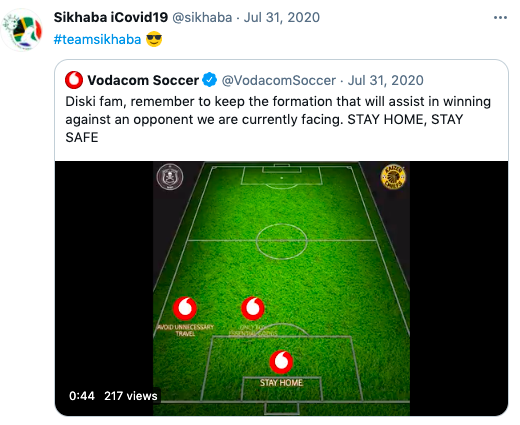
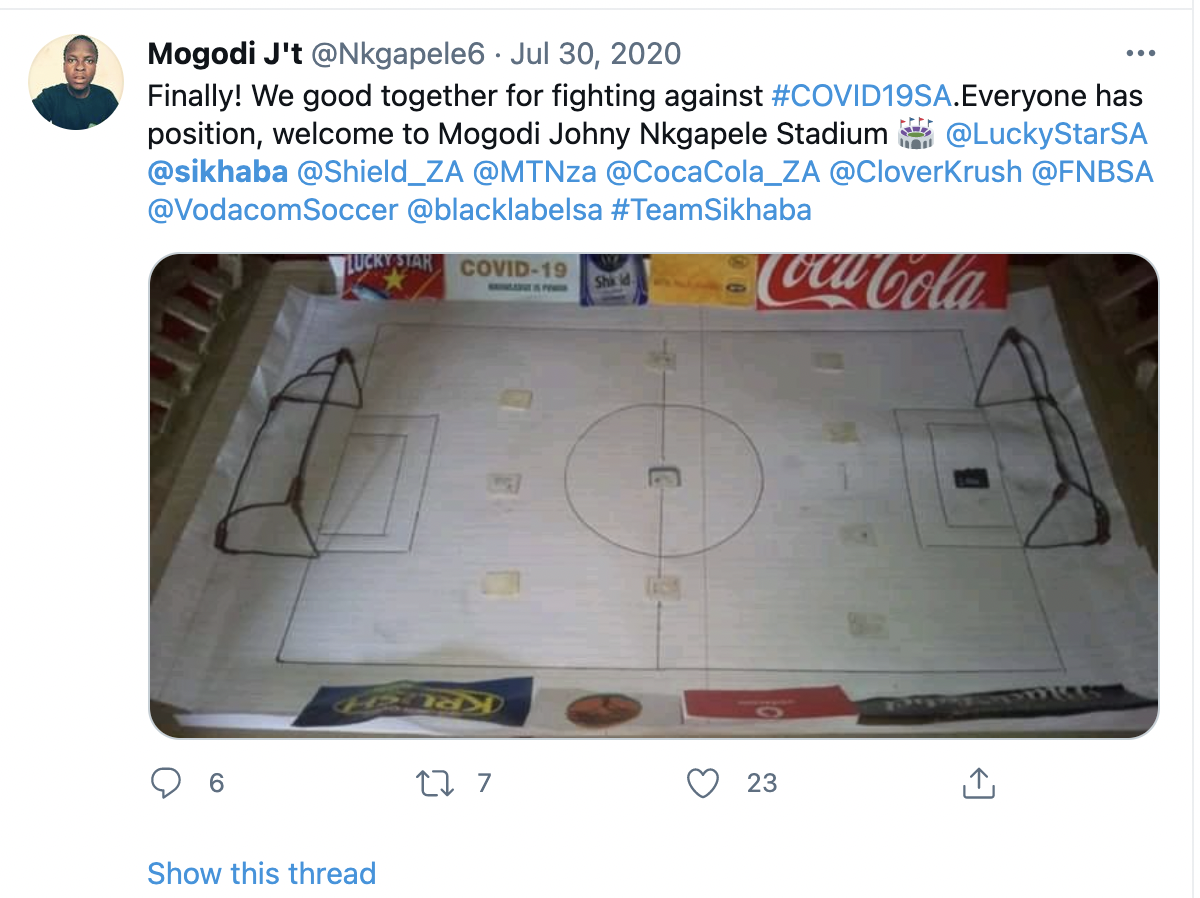
Through channeling people's passion for soccer and tapping into existing conversations, Sikhaba i-Covid19 and Treeshake were able to bring people together.
Over the course of the 3 days, 15.4 million people were reached on Twitter, 740,000 people on Facebook, with more than 45,000 people having interacted with the content across all platforms and 3,000 people having joined us in creating original posts in support of the campaign.
A major highlight was trending on Twitter nationally. This was especially exciting as Sikhaba was a brand new account with less than 10 followers at the start of the campaign.
The community spirit of the #TeamSikhaba was phenomenal. In just 3 days, thousands of people rallied together to fight COVID-19 in solidarity with one another. With the rapid growth of this community and the key voices that pulled through, we helped people feel less alone and scared. Widows, celebrities with COVID-19 and frontline workers reminded people that we are all in this together — the virus does not discriminate and neither should we. Battling an overall sense of fatigue around COVID-19 communications, the community came out stronger - inspired, hopeful and with renewed energy.
The #WorldWaterRun 2021: Rallying a Global Community Together for Water
This is how we got thousands of people from 132 countries to rally together for the sake of water. And while doing so, ran the circumference of the world eight times.
Working with long-time client, Mina Guli, we were tasked with sharing the idea that when done collectively, incremental steps matter. #WorldWaterRun aimed to rally runners across the world in the name of water, with the ultimate goal of running the circumference of the world. We did that. Eight times over. How? We learned when you foster communities, they show up for you. More below.
Water. We can’t live without it, yet we treat it as if it’s an infinite resource.
When we fill our cups with clean drinking water that flows freely from our faucets, how often do we consider those who have to commute for hours just to get that first sip? We seldom think of the policies, infrastructure and freshwater systems that make that one drop possible.
Next time you take a sip of water from your filled-to-the-brim glass, or take a warm shower after a long day, take a moment to think of those that don’t have that luxury.
It was from this awareness of water scarcity that #WorldWaterRun was born.
Thousands of people - runners, walkers, joggers, and hikers - completed the distance of the world’s circumference eight times. That’s 335,657 KM for one common cause. This feat was made possible through months of careful and sincere community management, as well as content creation that added true value to Mina’s audience. With a strong foundation, we mobilised a mammoth community to take part in World Water Run and make it their own.
Our Global Community of Water Warriors
Individuals
Fostering an inclusive community means celebrating people’s individual merits, whilst also allowing them to feel part of something bigger than themselves. Let’s take a closer look at our water warriors:
There were representatives from a whopping 132 countries, ranging from South Sudan to the Vatican City.
We had runners and walkers as young as four and as old as eighty.
There were participants who did 5km over seven days, and those who did 100km.
A number of runners took part in World Water Run despite injury, disability, or illness. Billie Milholland from Canada crept into our team’s heart when she posted about her daily walks, bringing new meaning to the phrase, ‘slow and steady wins the race.’ Billie reached her target of 500m, then 1.5 km, and eventually 6km on World Water Day. And she did it with the best accessory - her trusted walker!
Everyone’s efforts were applauded with aplomb through round-the-clock community management, ready with praise, encouragement, and any questions people may have had about the event.
Three people were assigned to the (rapidly growing) community of 283,238 individuals, overseen by two campaign managers. Along with an in-house tech wizard and a custom-built onboarding Facebook bot, our team was there to ensure the community felt seen, and that joining World Water Run was as easy as possible.
Partners
Over the past year, we’ve been doing micro-community management with brands and accounts who matter, like UN-Water and WWF. These conversations have resulted in collaborations, invaluable support and partnerships.
We are especially grateful to our partners, Aqua for All, YPO and The Valuing Water Initiative, for collaborating with the Thirst Foundation on this campaign.
Our volunteers
For this campaign, we elected 18 Country Captains from across the world. For countries with a larger sign-up total, like the Philippines, South Africa, and India, we selected two Country Captains.
The following Countries were represented in our Country Captains group:
Seychelles | India | Tanzania | Philippines | South Africa | Uganda | Cameroon | Kenya | Zambia | United Arab Emirates | Namibia | Indonesia
We also had a Country Captain group on Facebook, where we gave the Country Captains priority access to information and exclusive videos from Mina. They also all received a thank you gift following the campaign.
One of our Country Captains, Anita Arendsen from South Africa
Smashing limits
Collectively, we reached and exceeded every goal for the campaign. We had a distance target of 40,075 km, but finished with 335,657 km. We aimed for 50 million impressions, but ended up garnering 294 million. We also grew our newsletter audience to 11,780, which was an increase of 8,514 sign-ups. Overall, we reached a global community of around 283,238 dedicated water warriors!
This is the power of long-term engagement and community building. The success of #WorldWaterRun shows what’s possible when you meaningfully engage with your audience. It speaks volumes for the evocative goal of raising awareness around water scarcity, and how the marriage of message and community can, quite literally, go around the world.
To stay up to date with future campaigns, keep an eye on Mina Guli’s website and social media platforms.
Website | www.minaguli.com
Facebook | https://www.facebook.com/MinaGuliWater
Twitter | https://twitter.com/minaguli/
Instagram | https://www.instagram.com/minaguli/


















